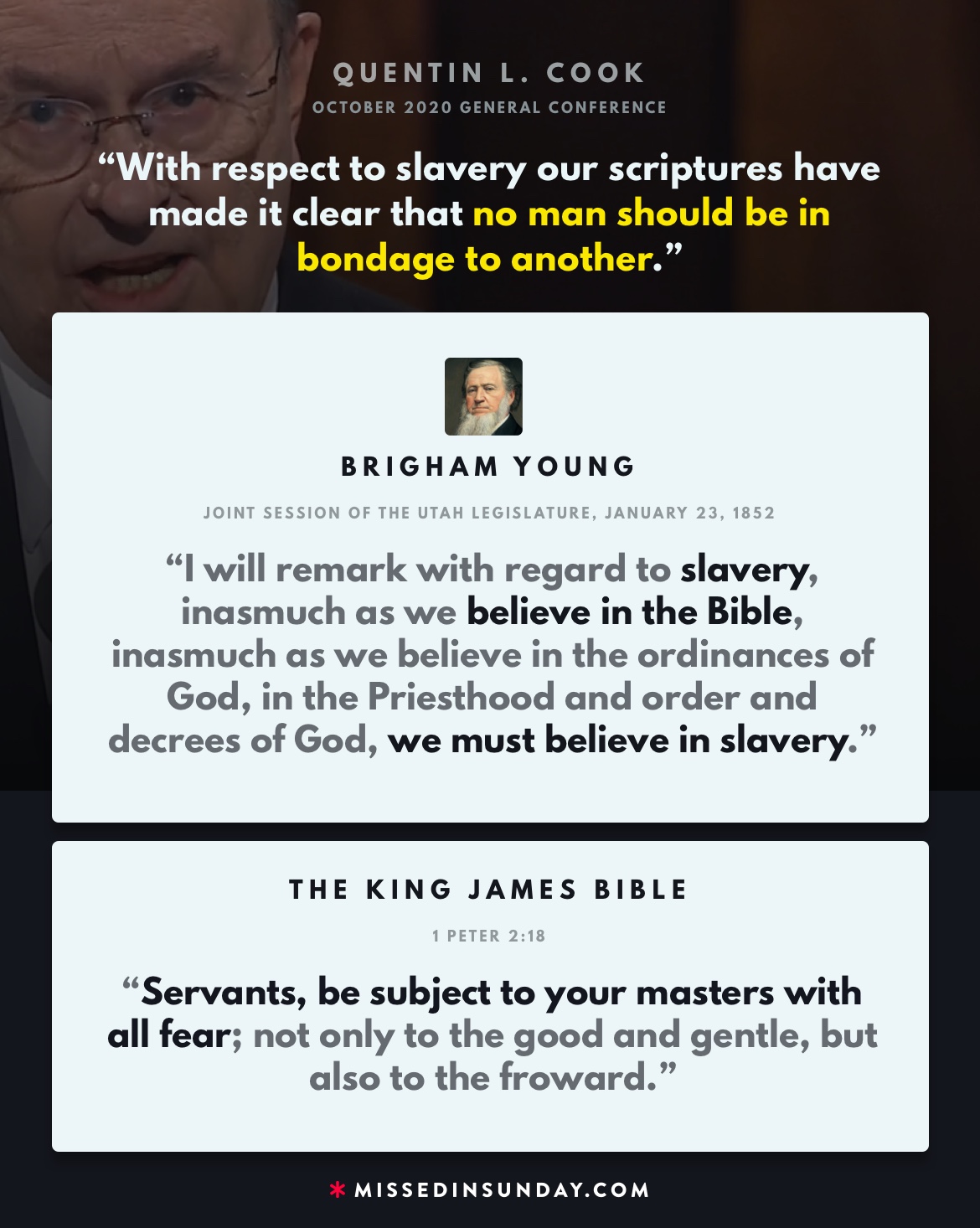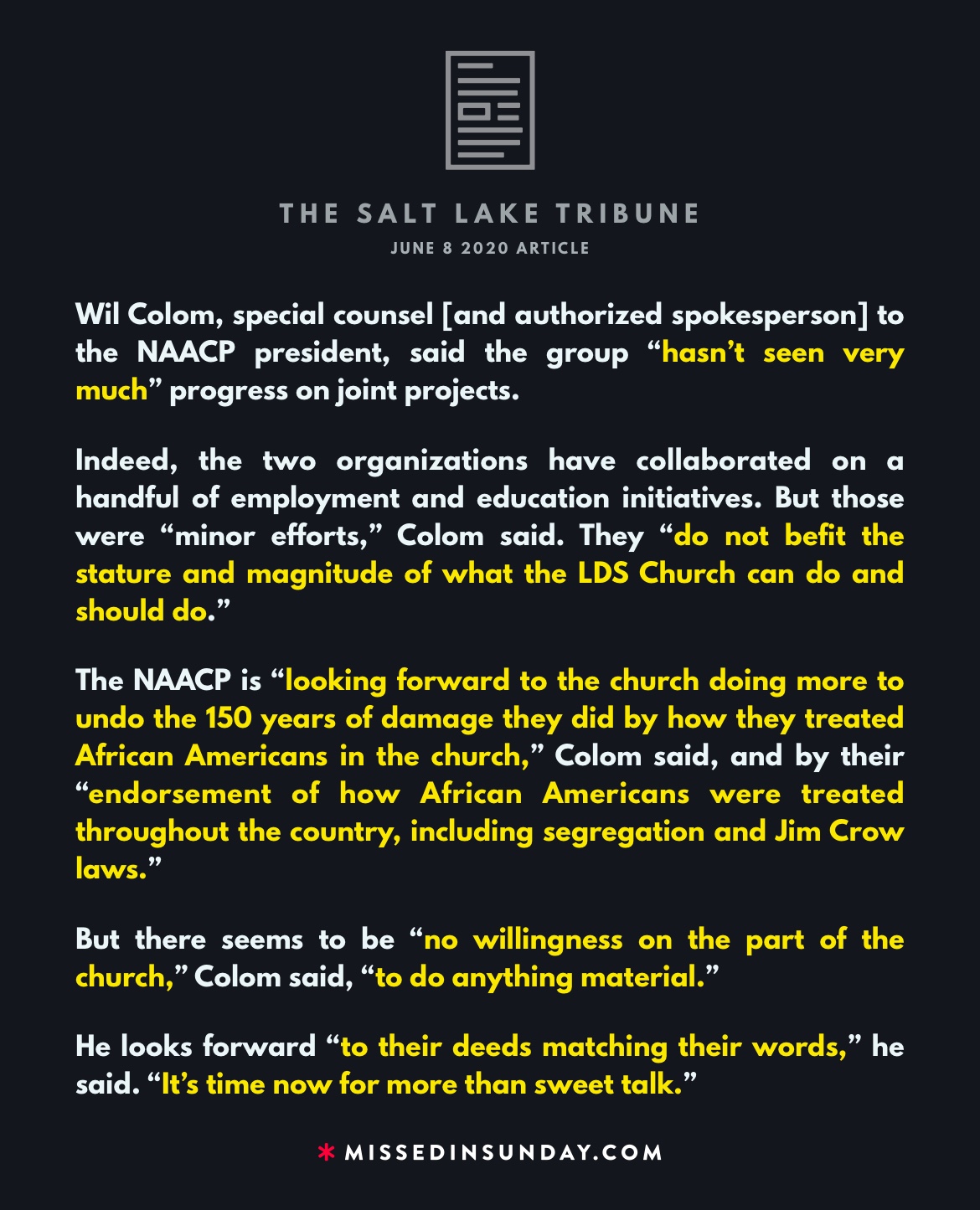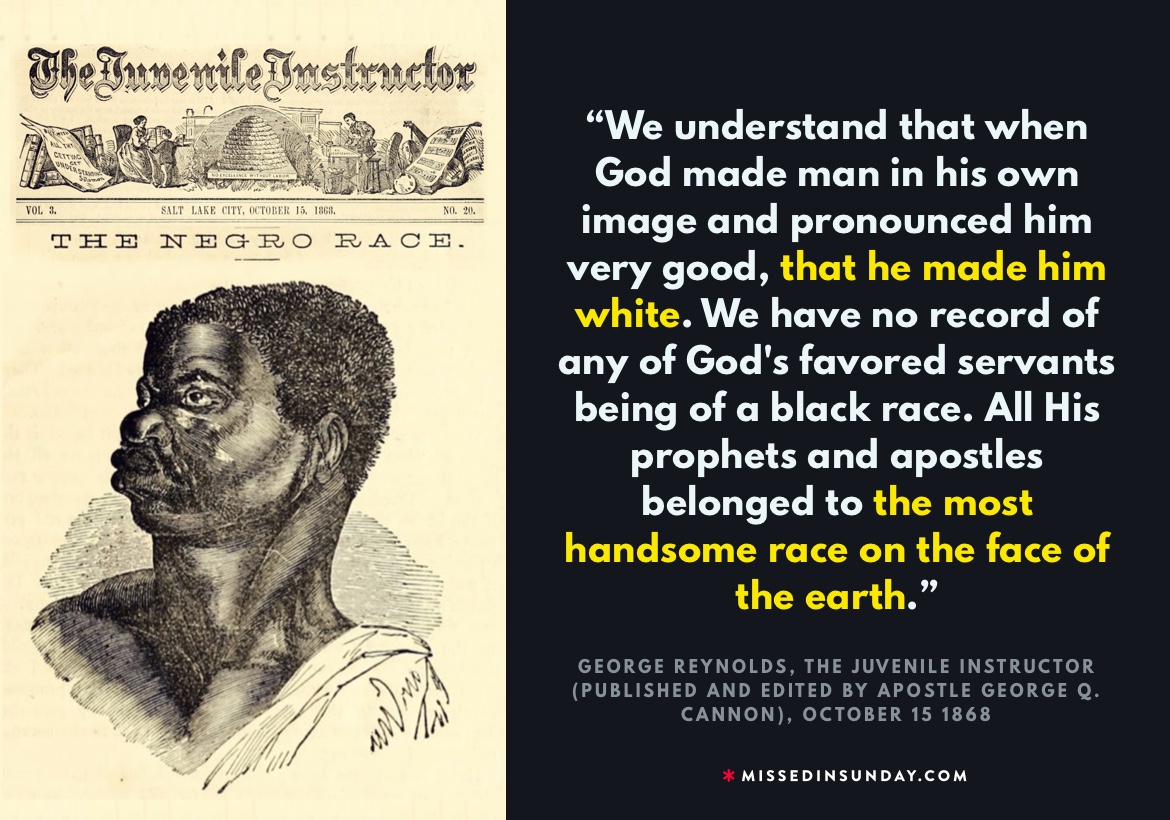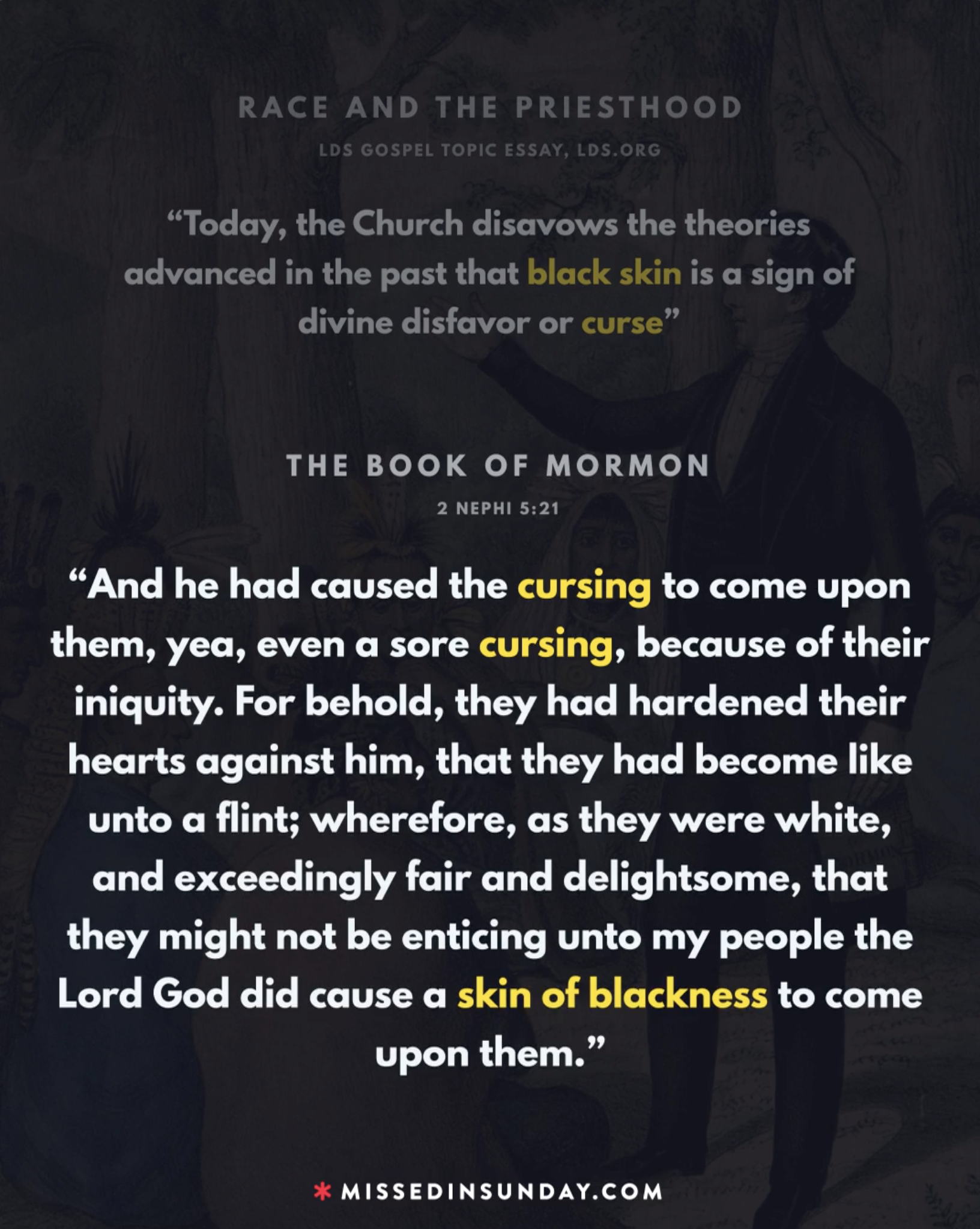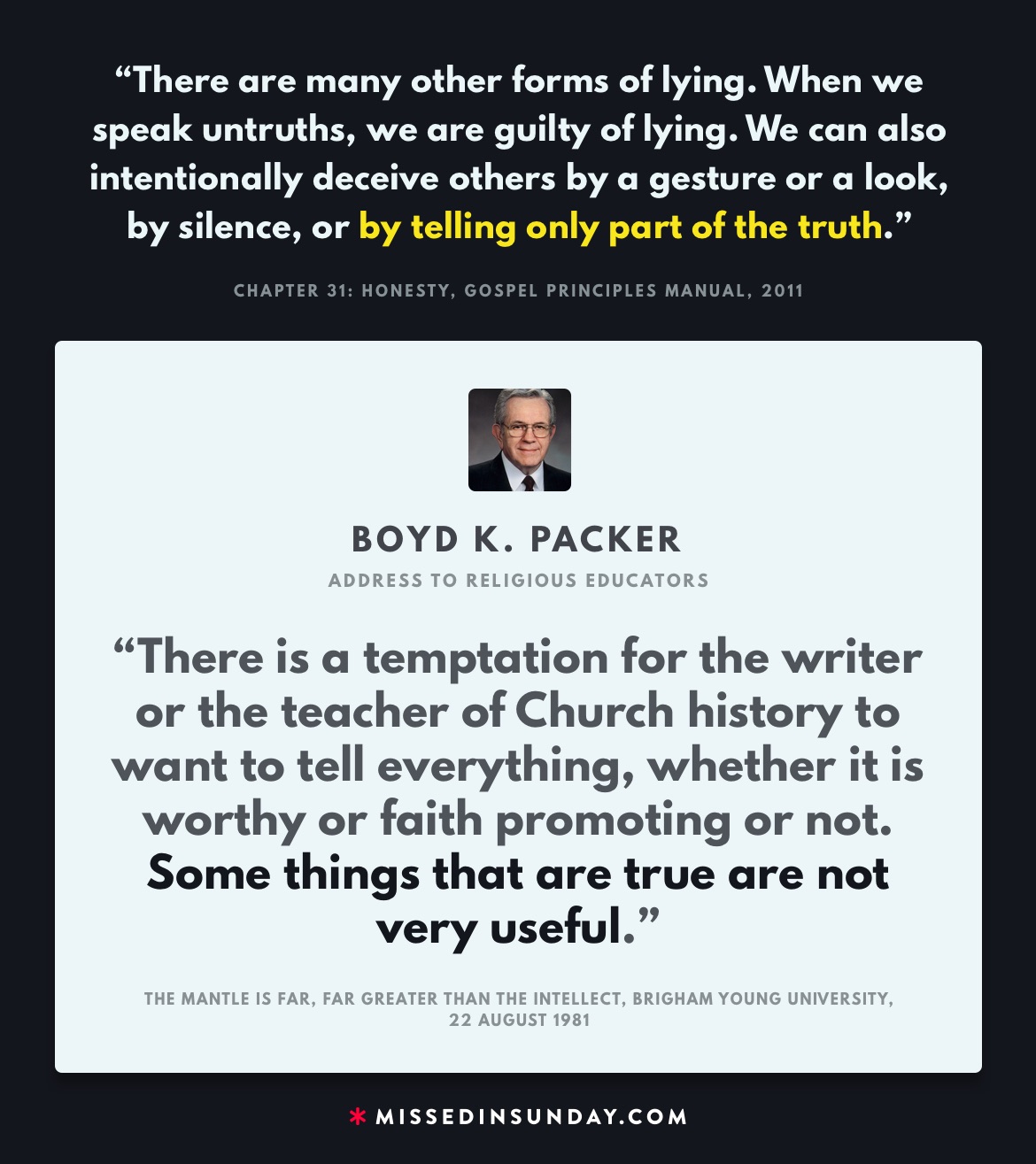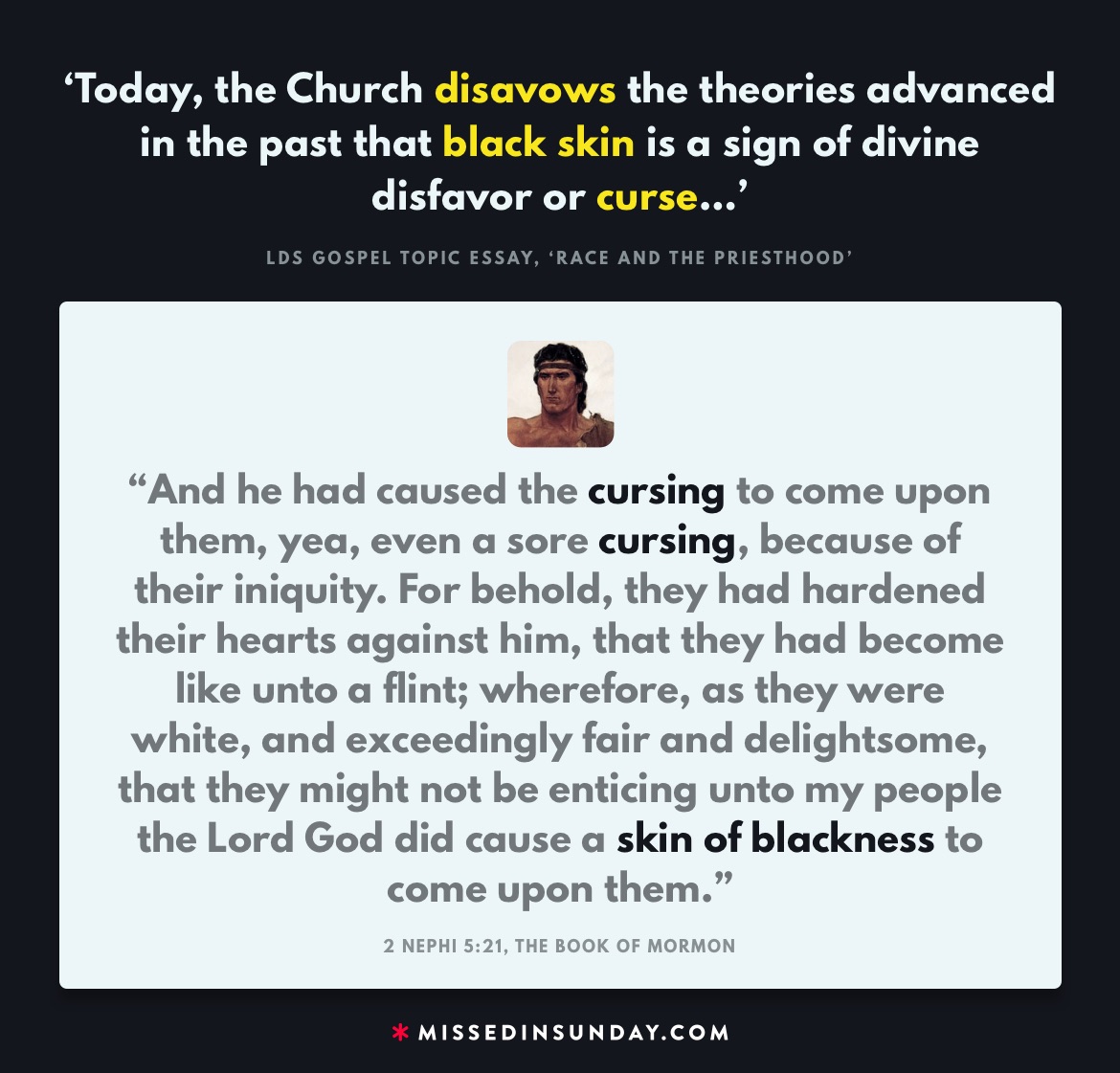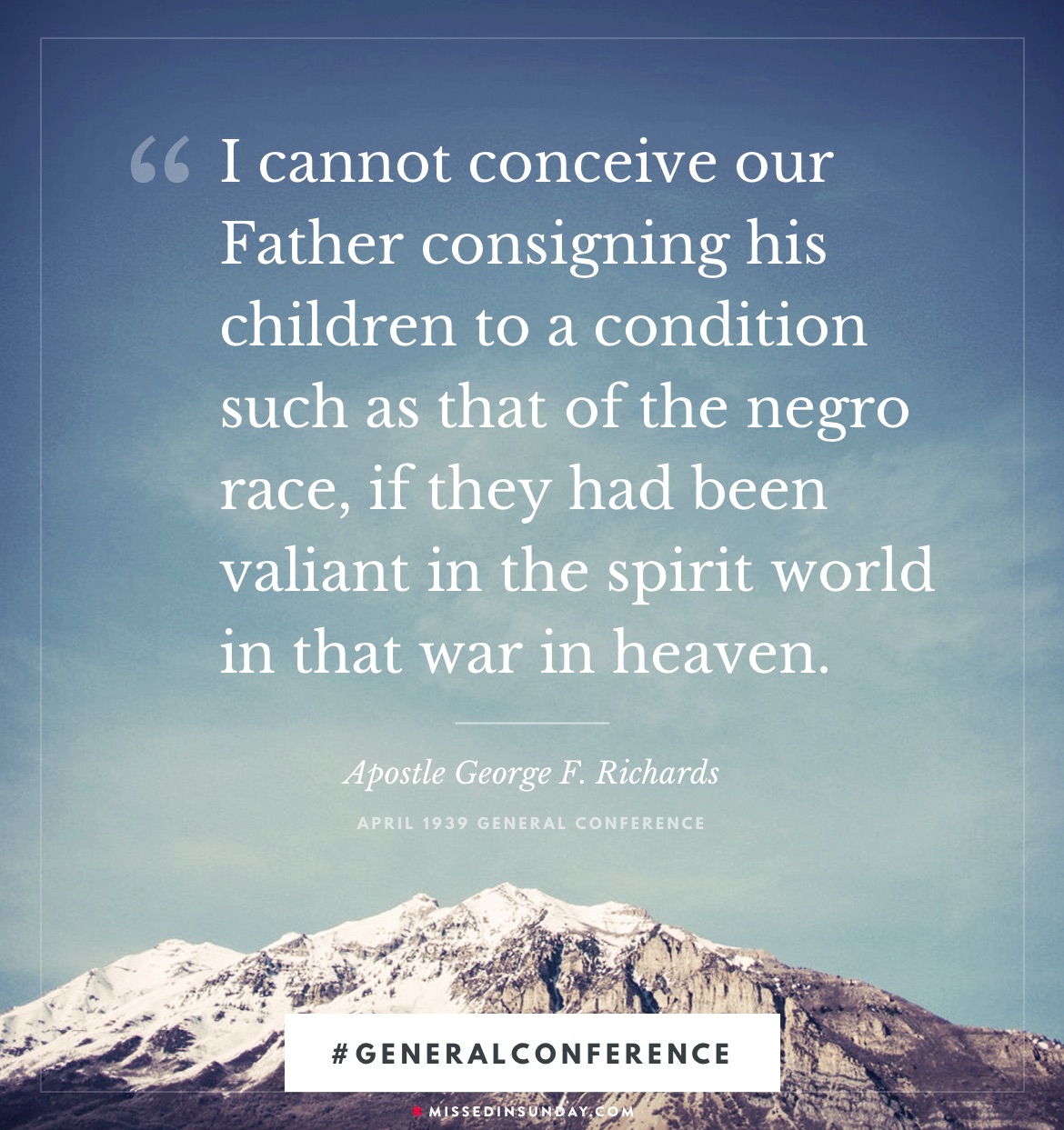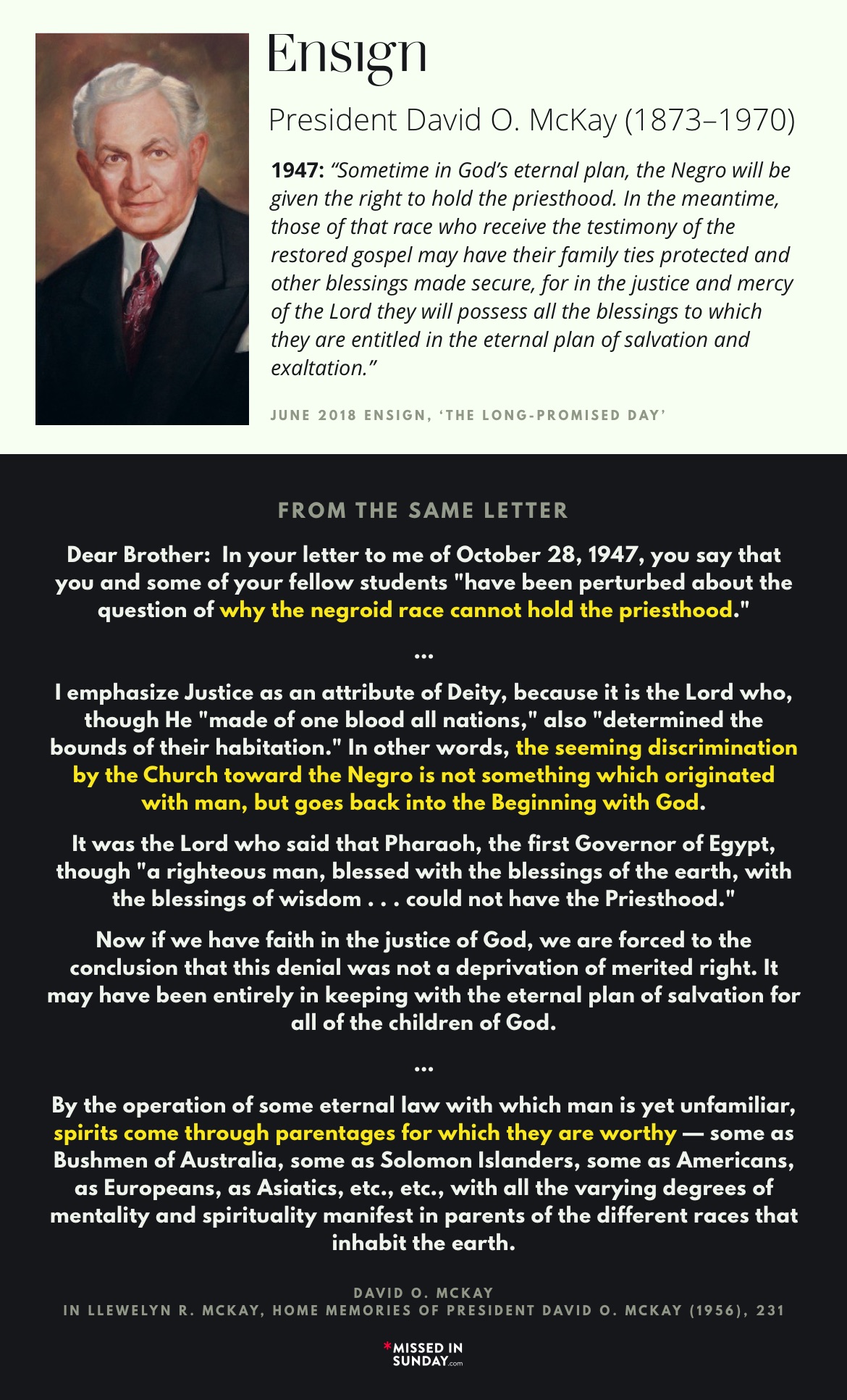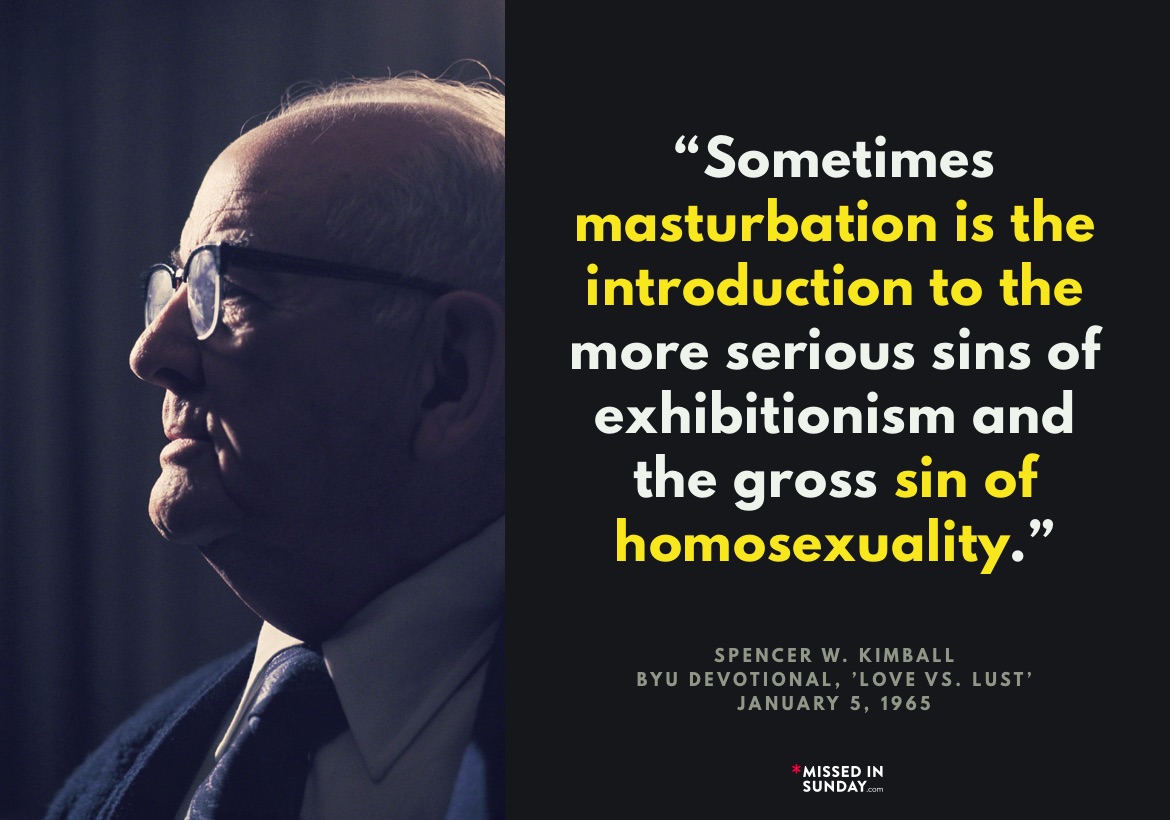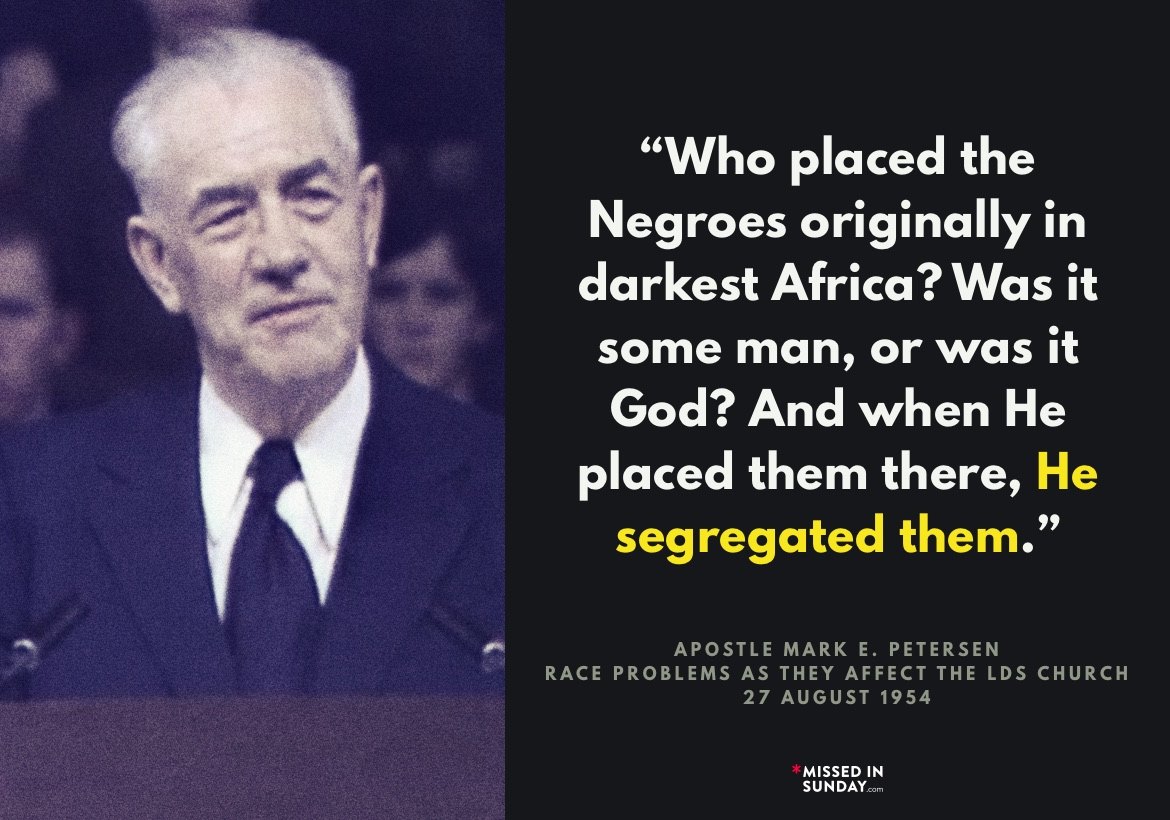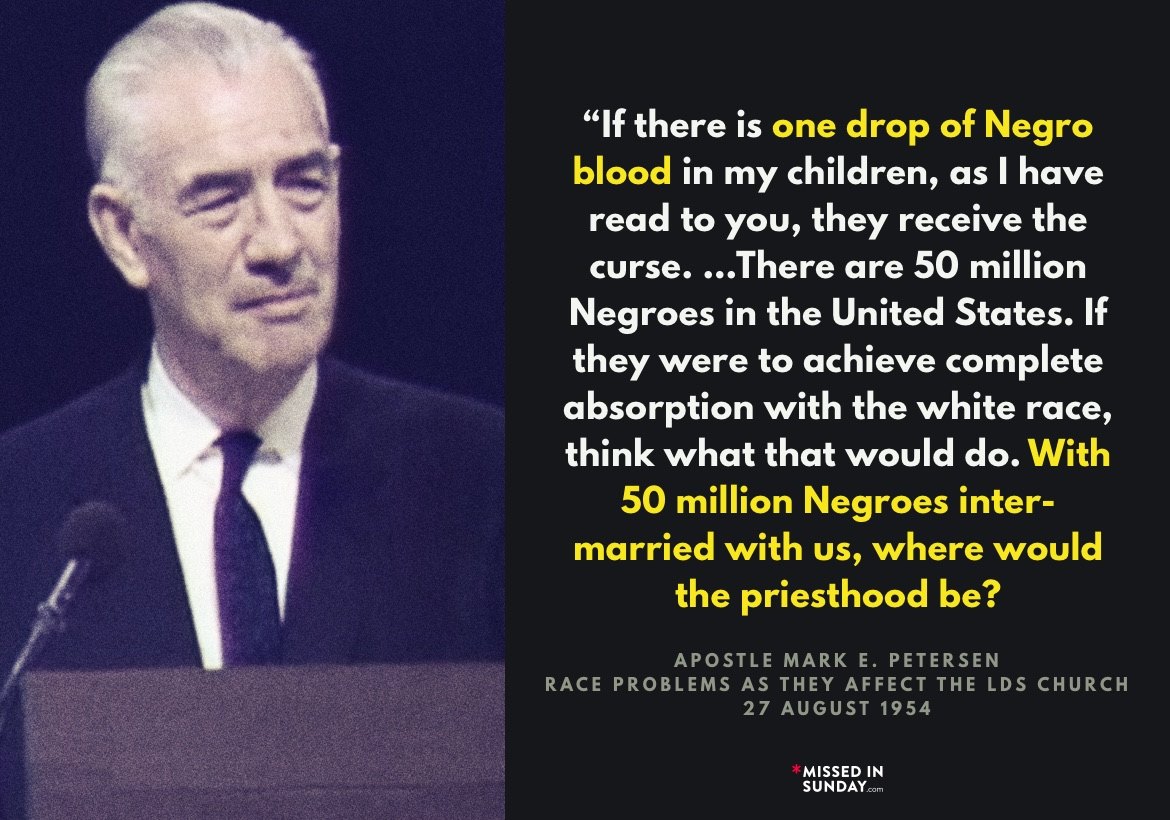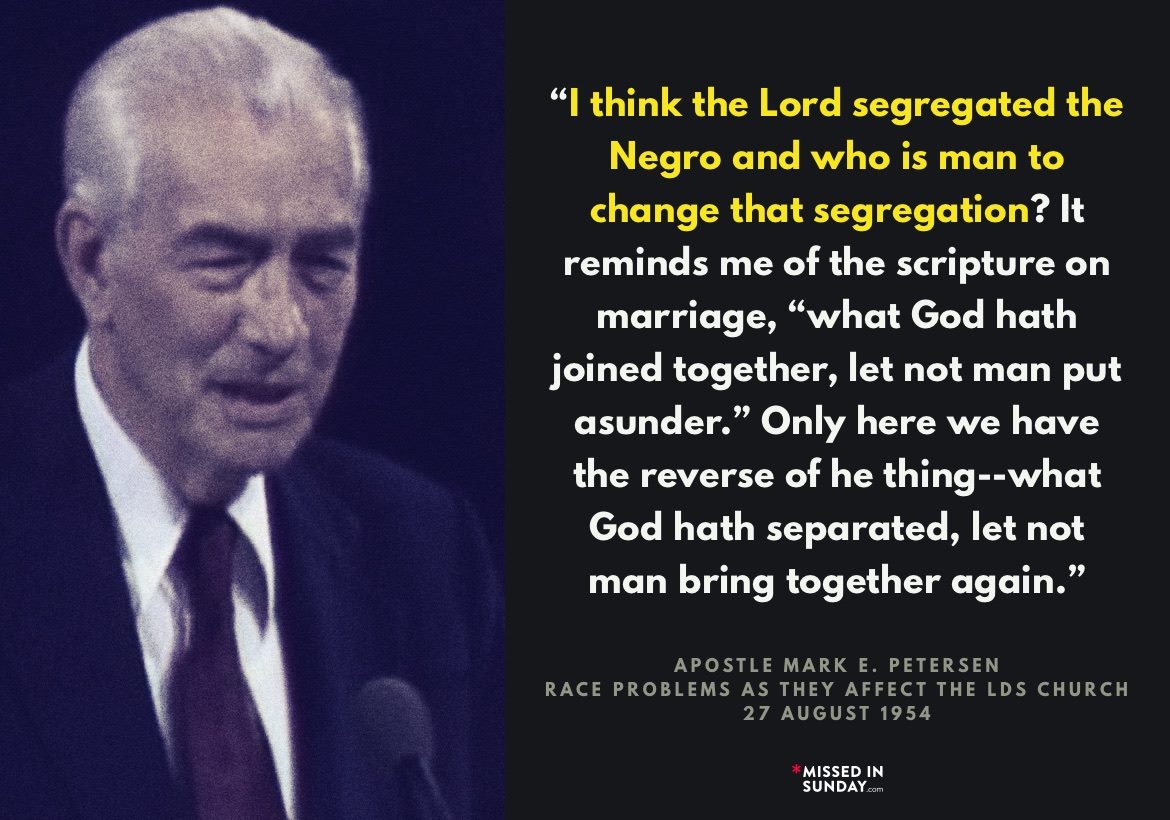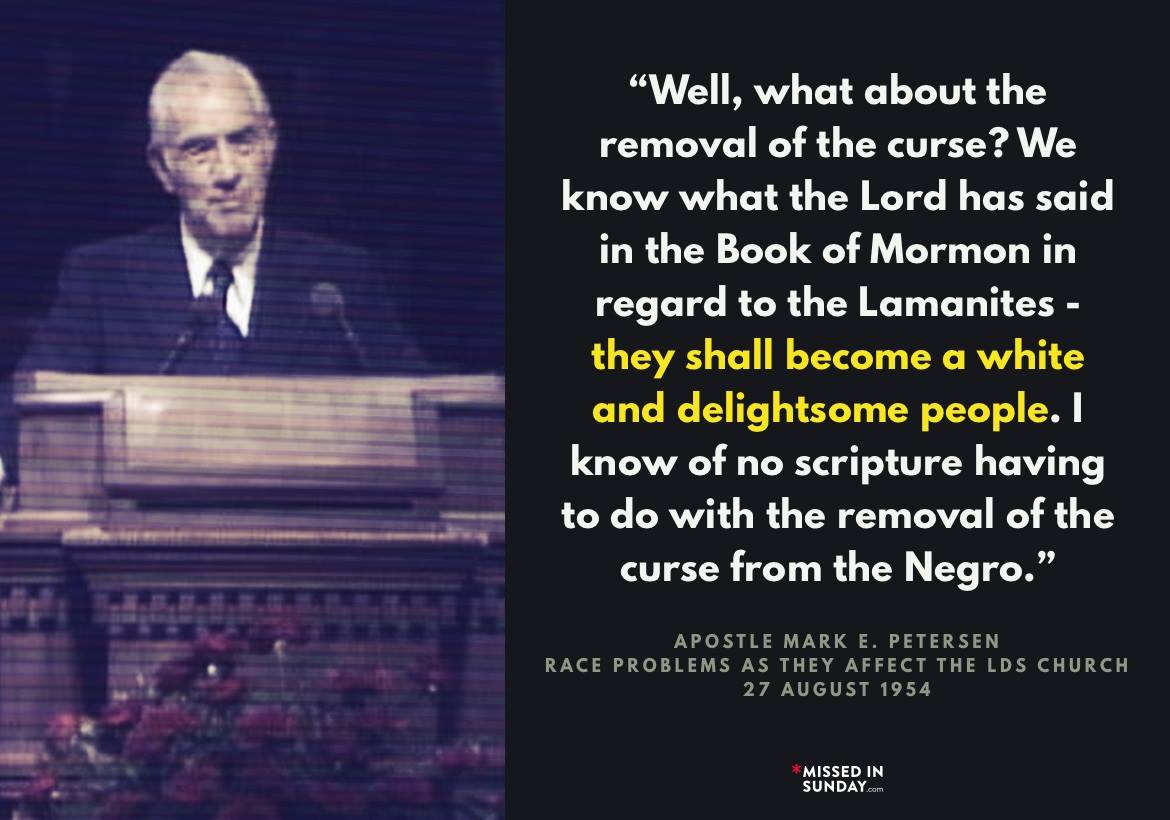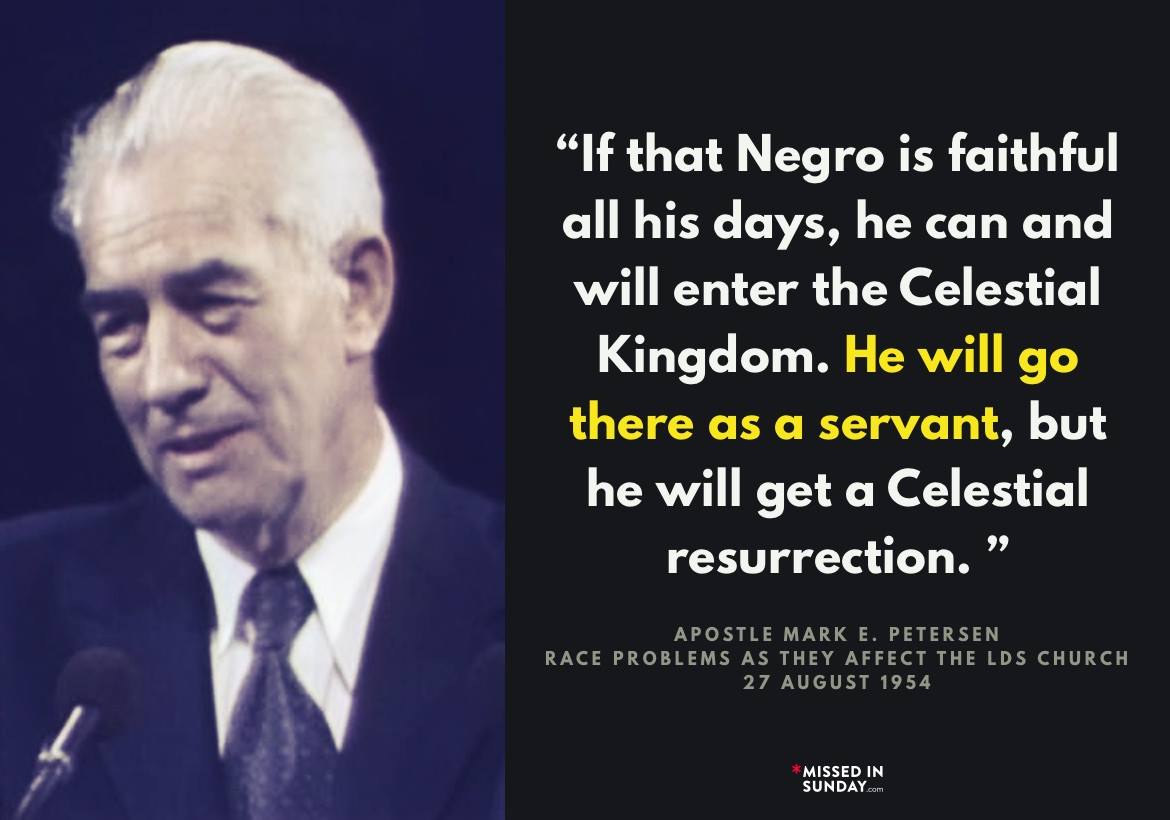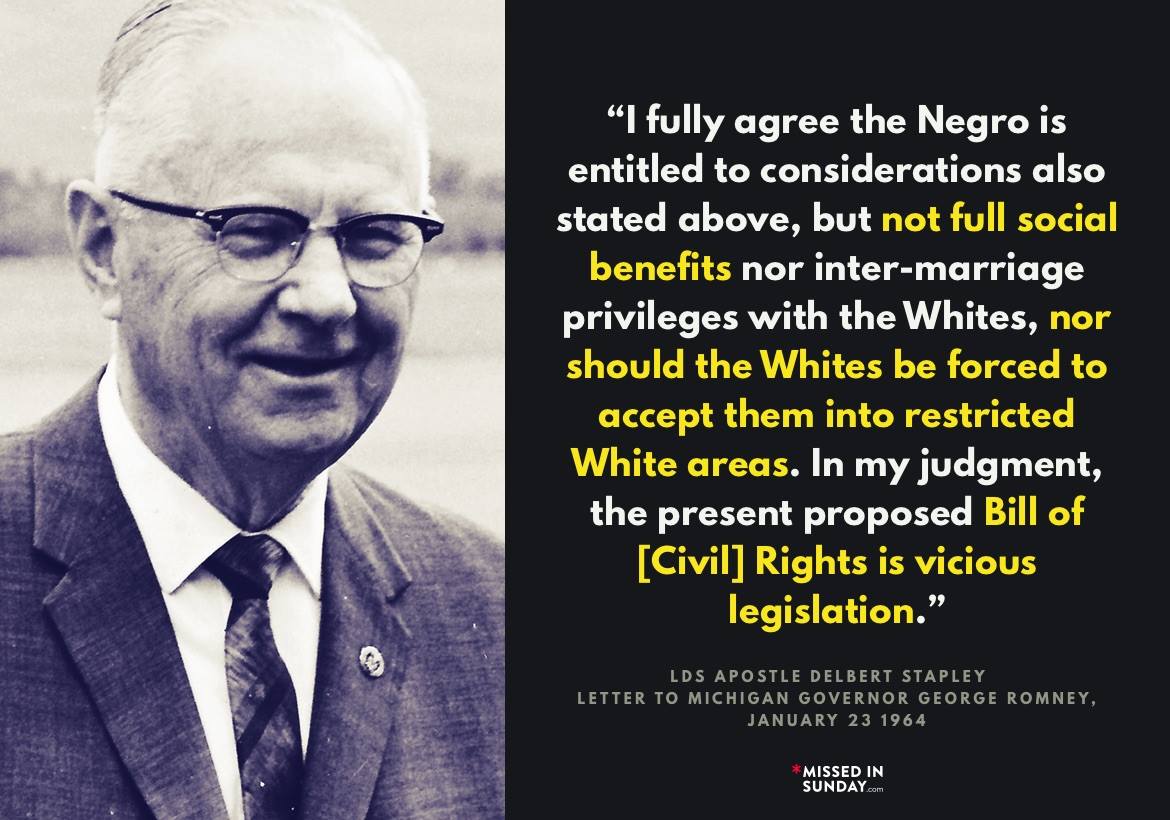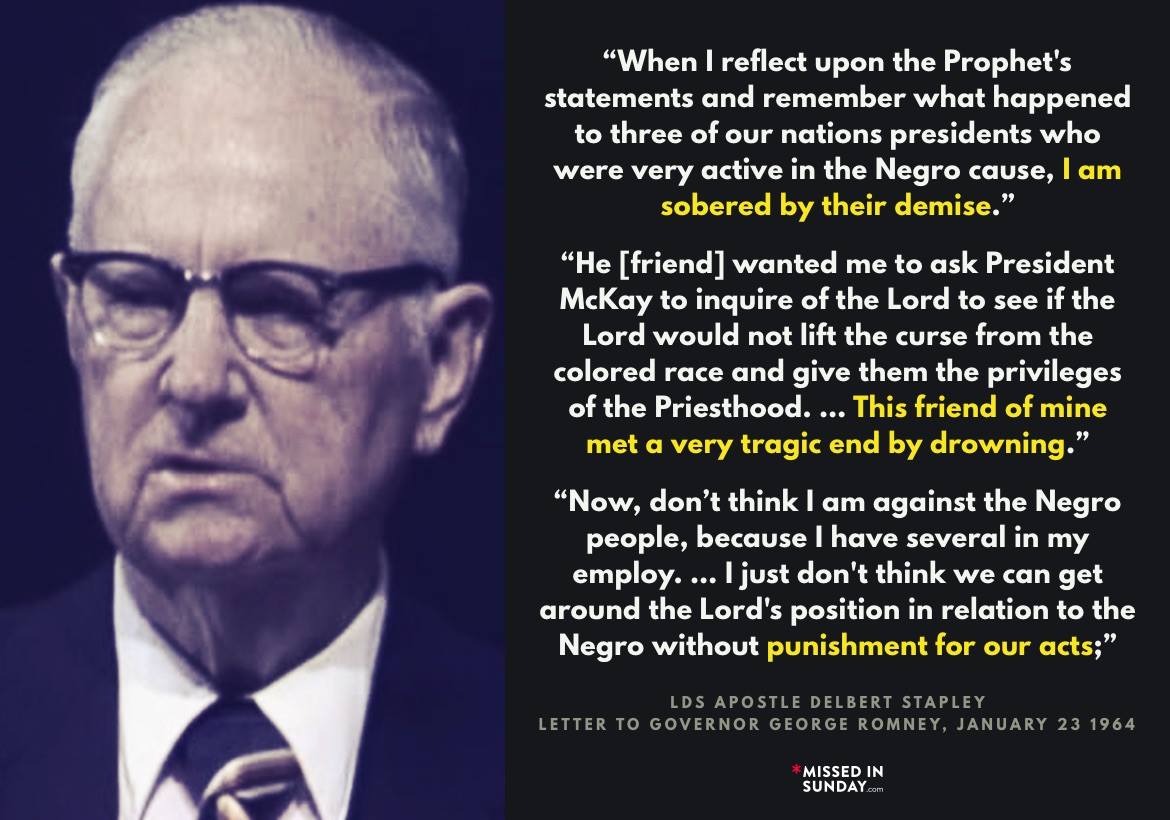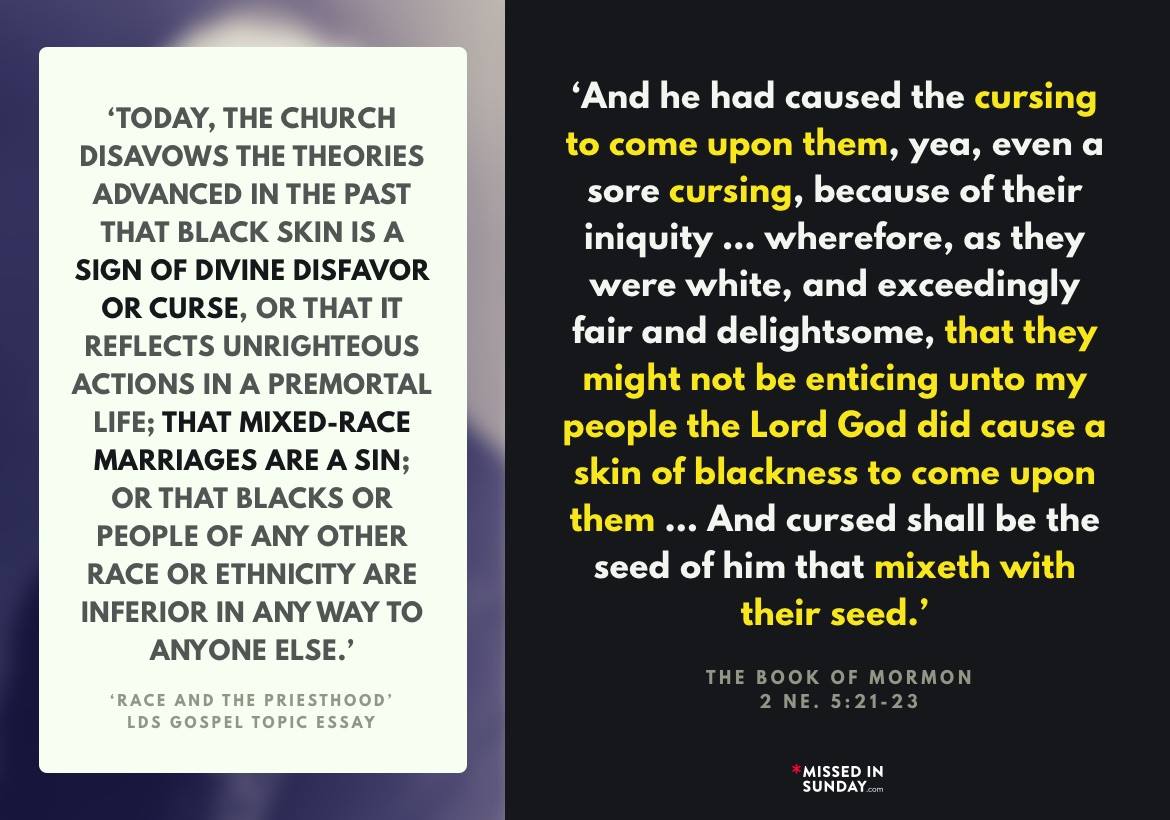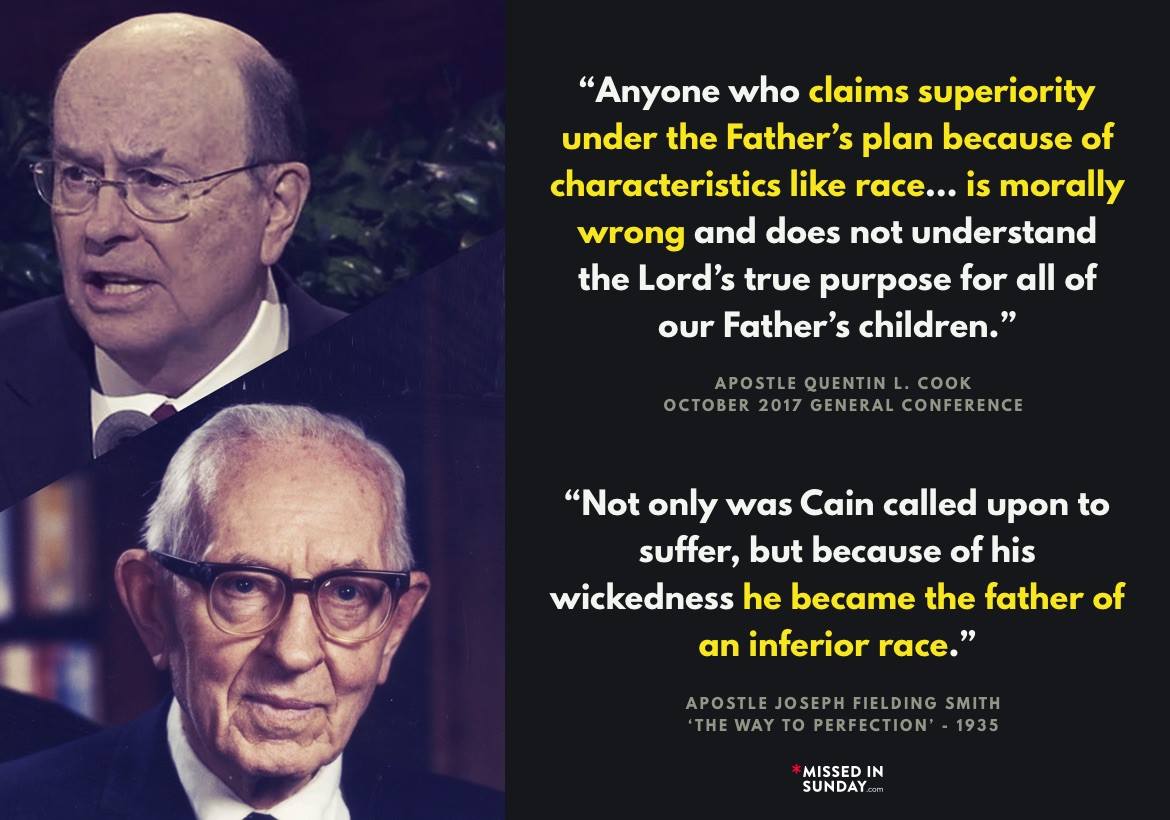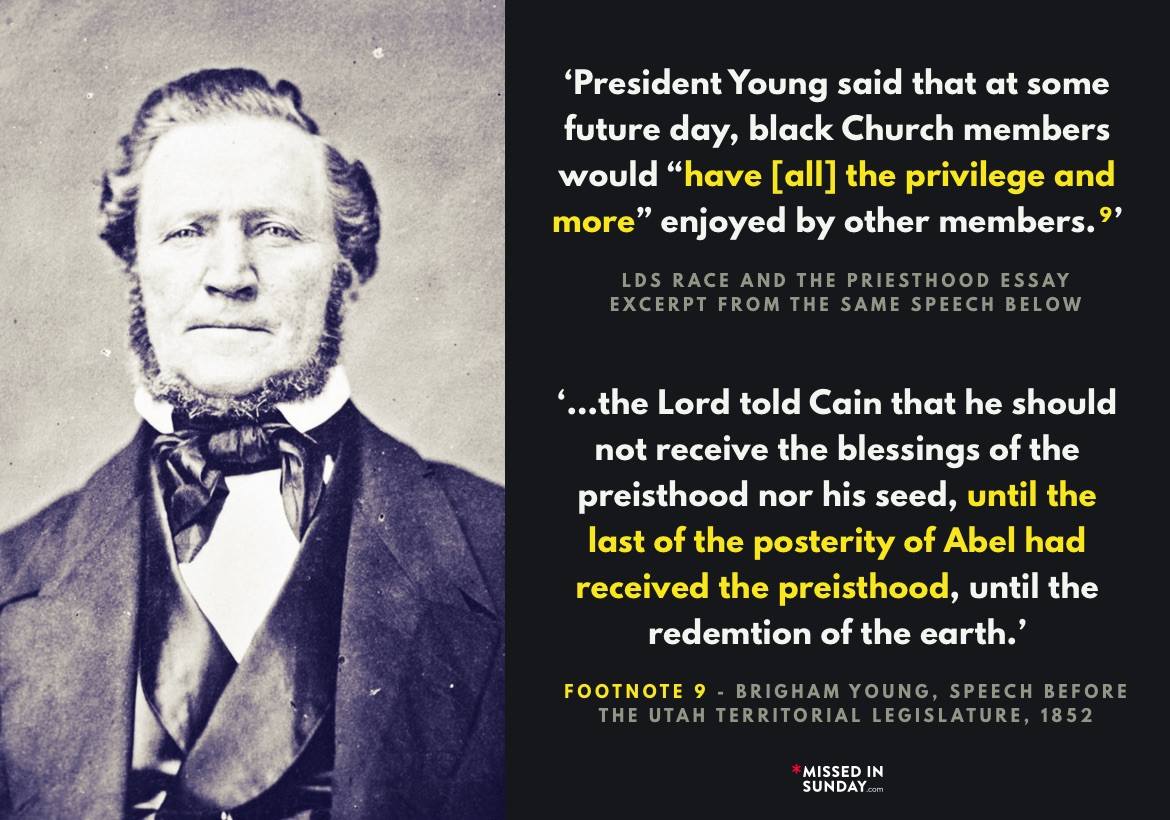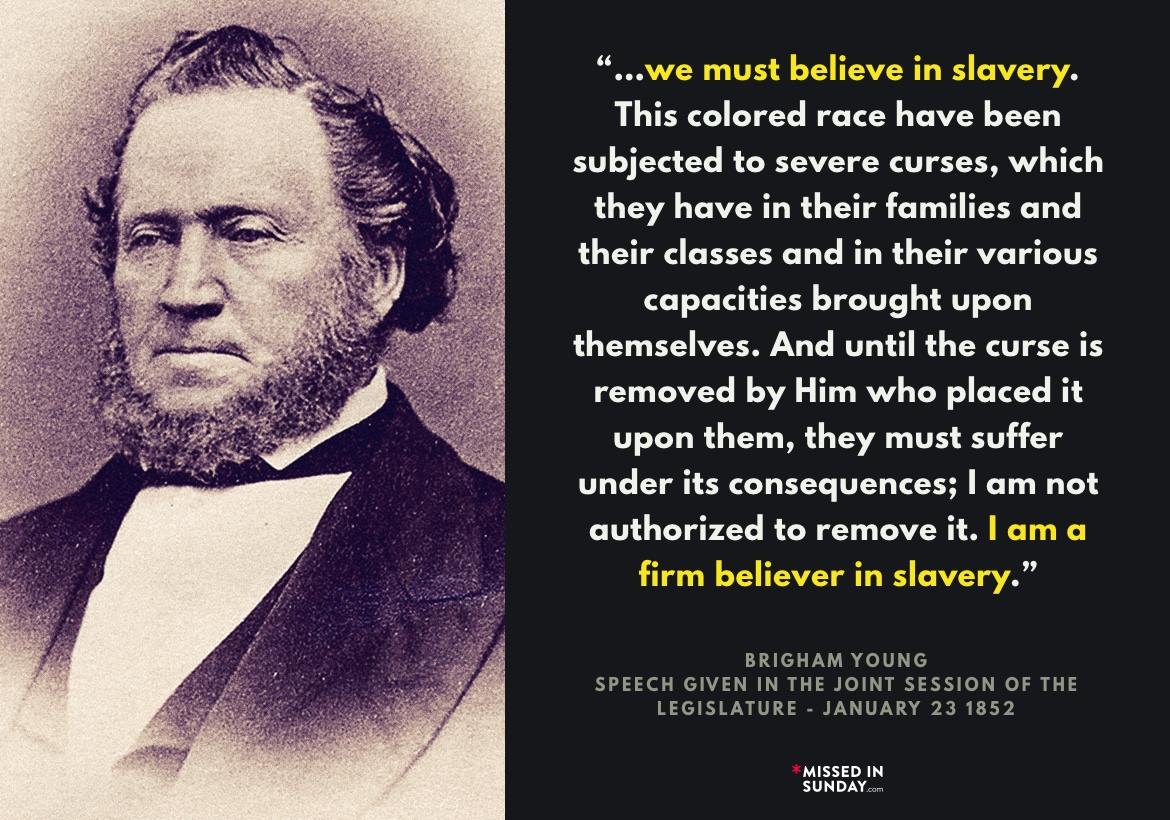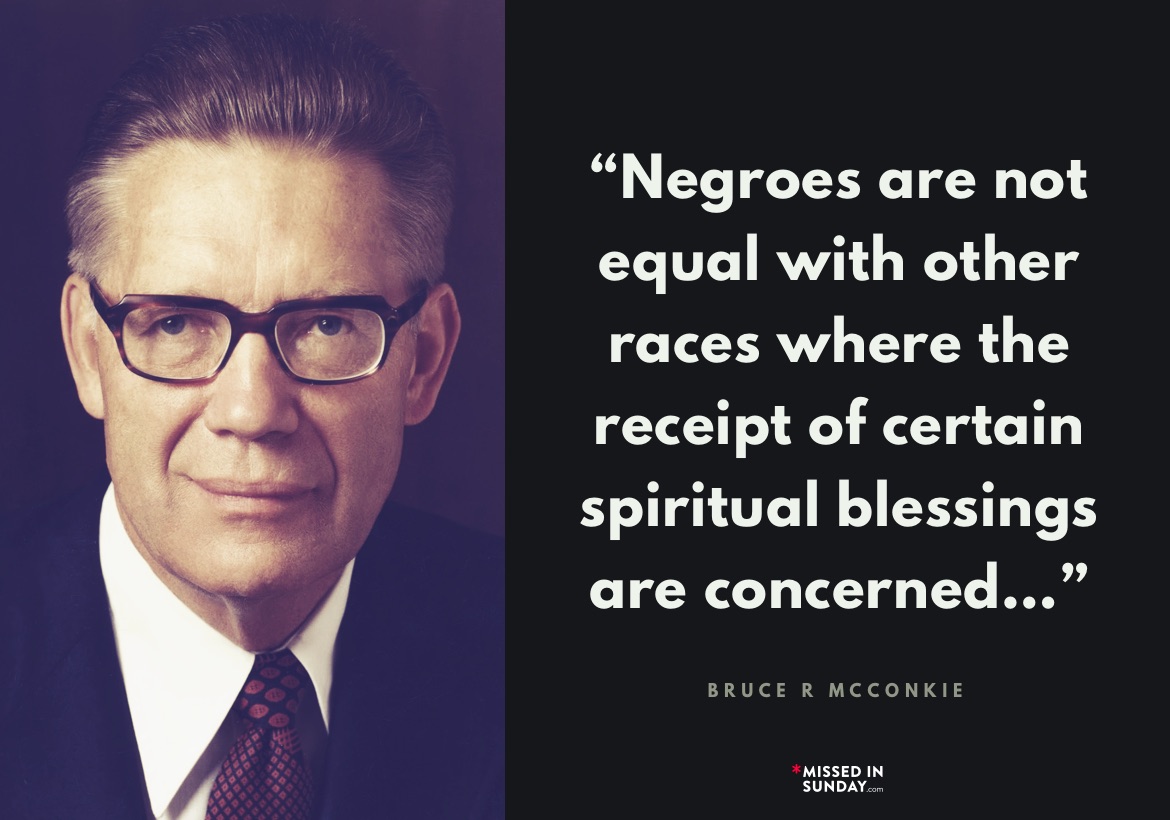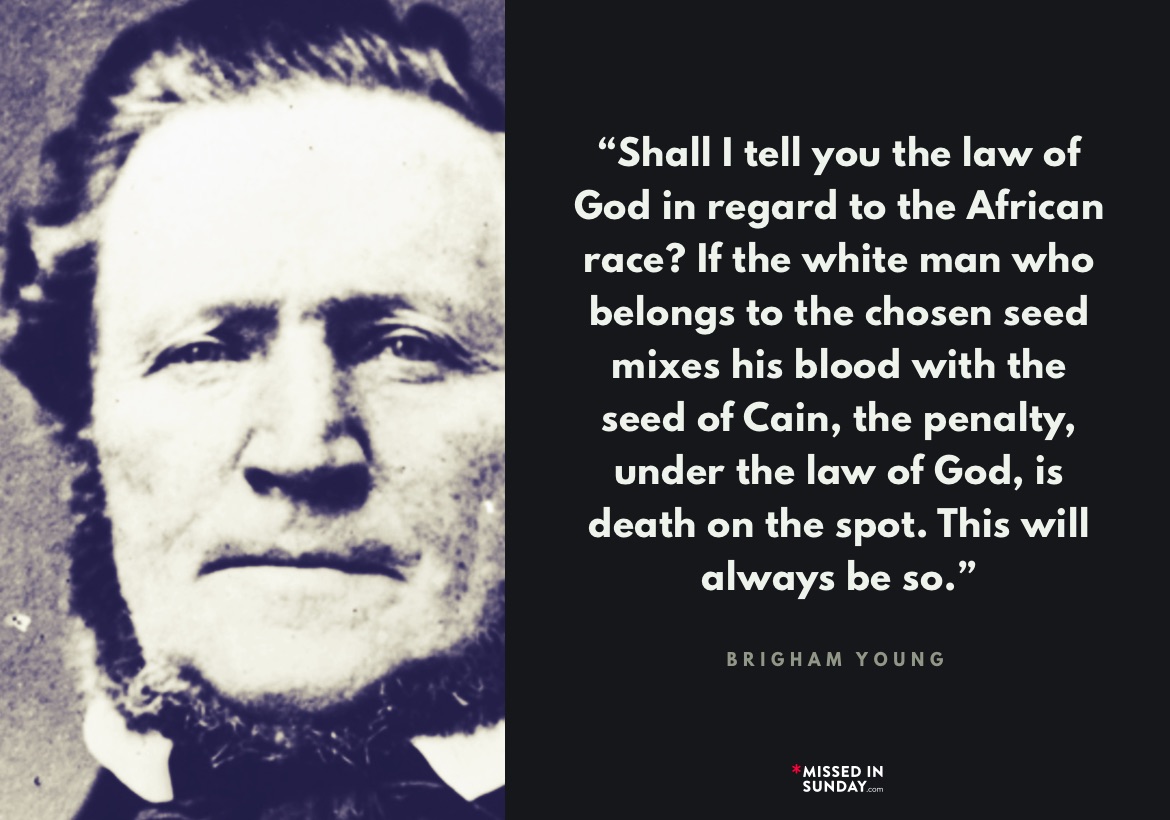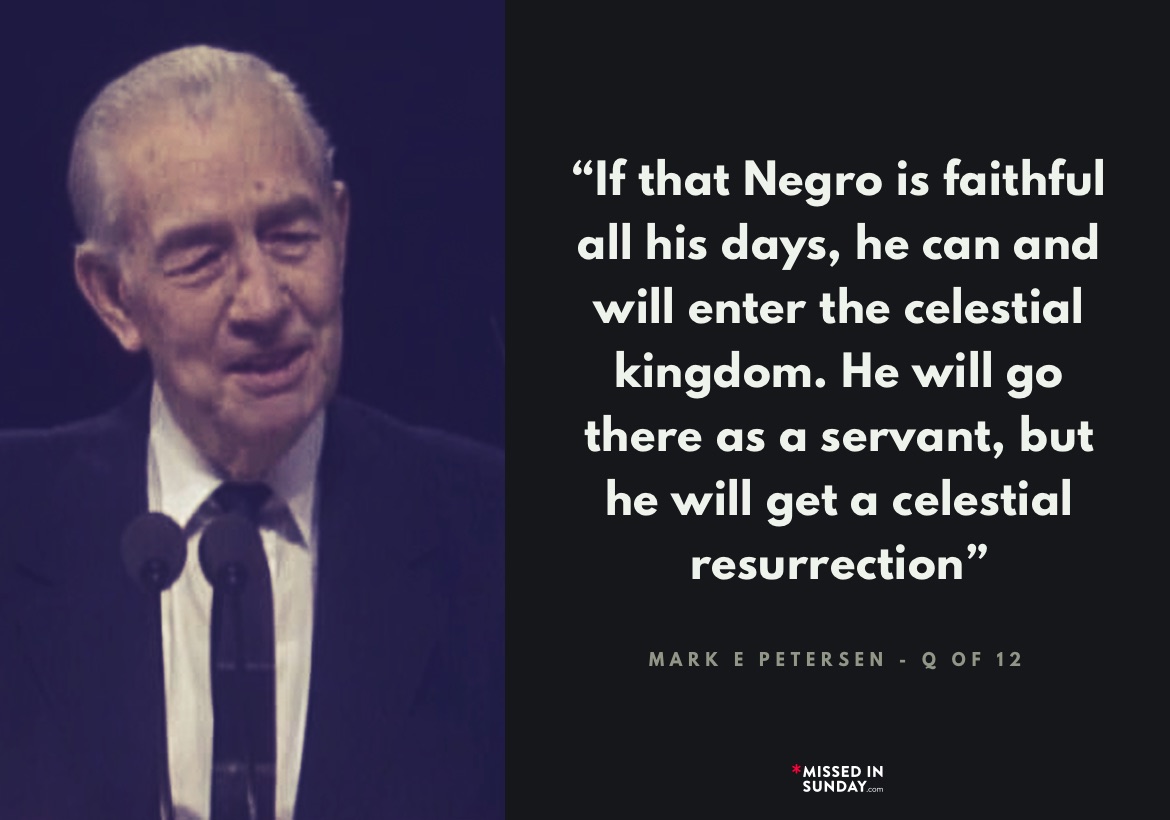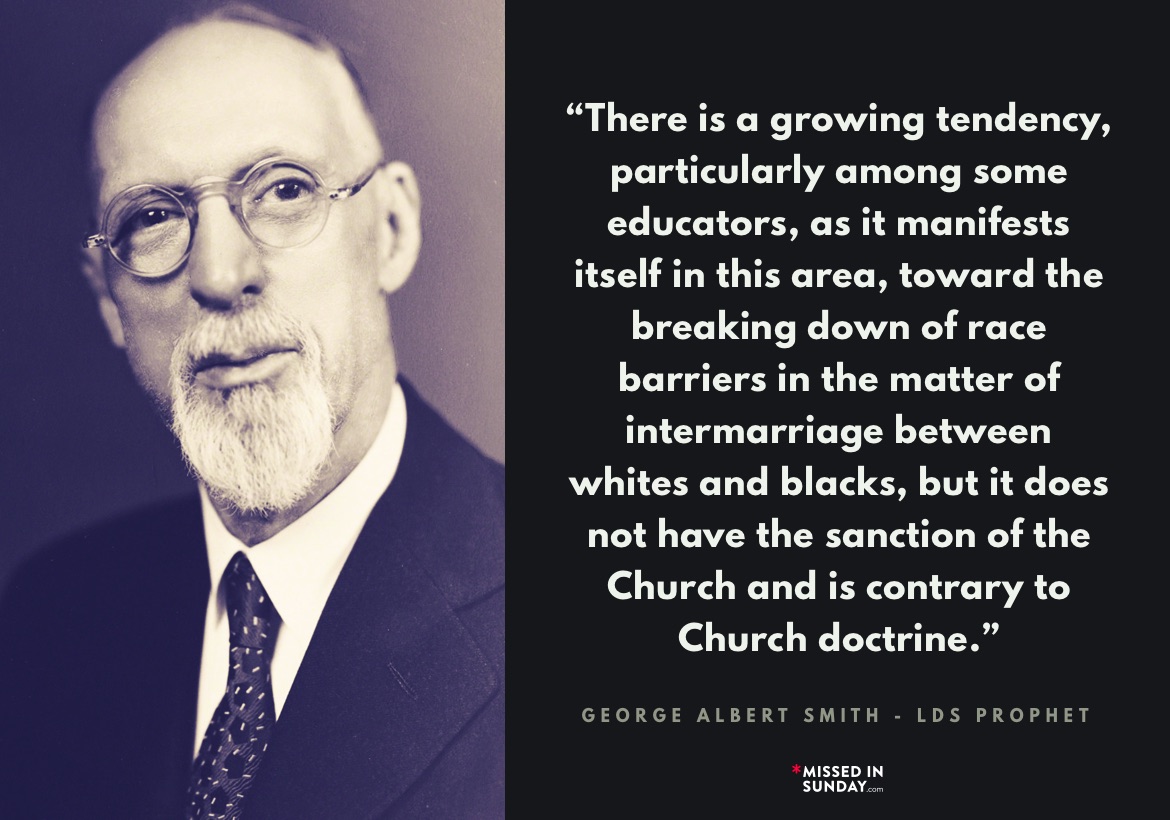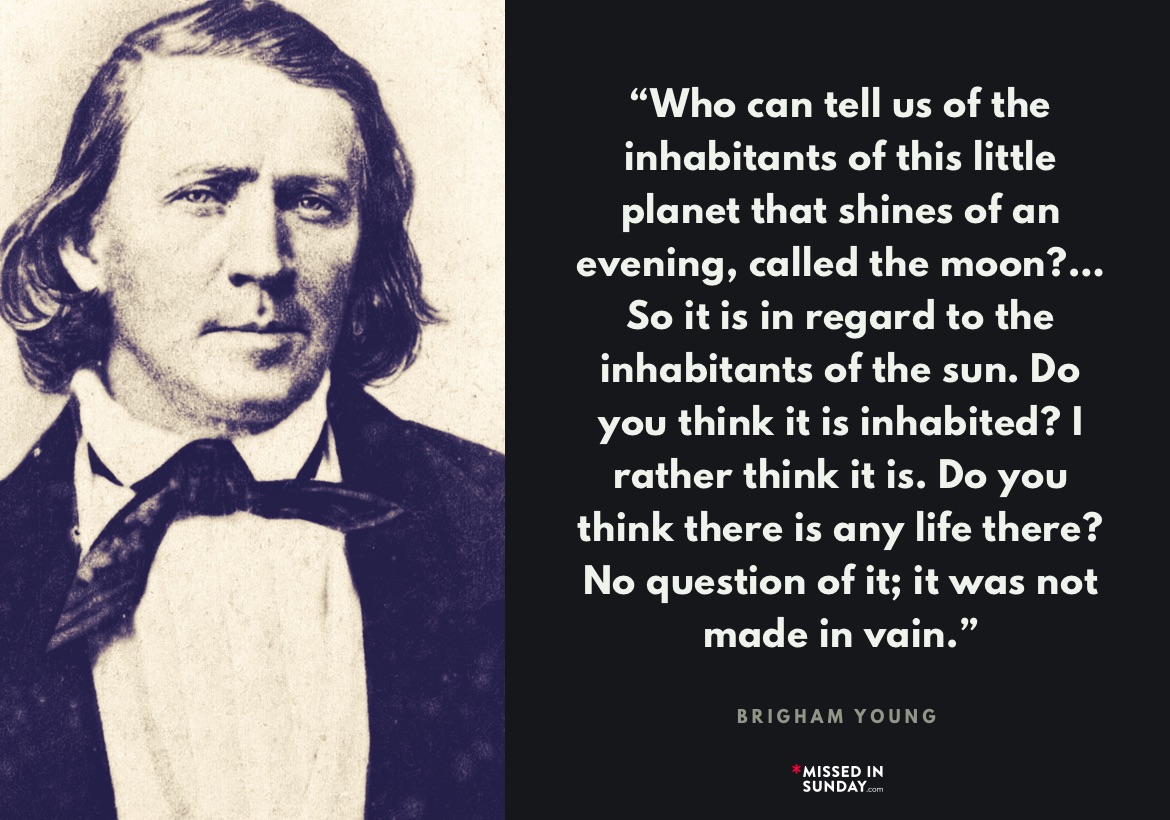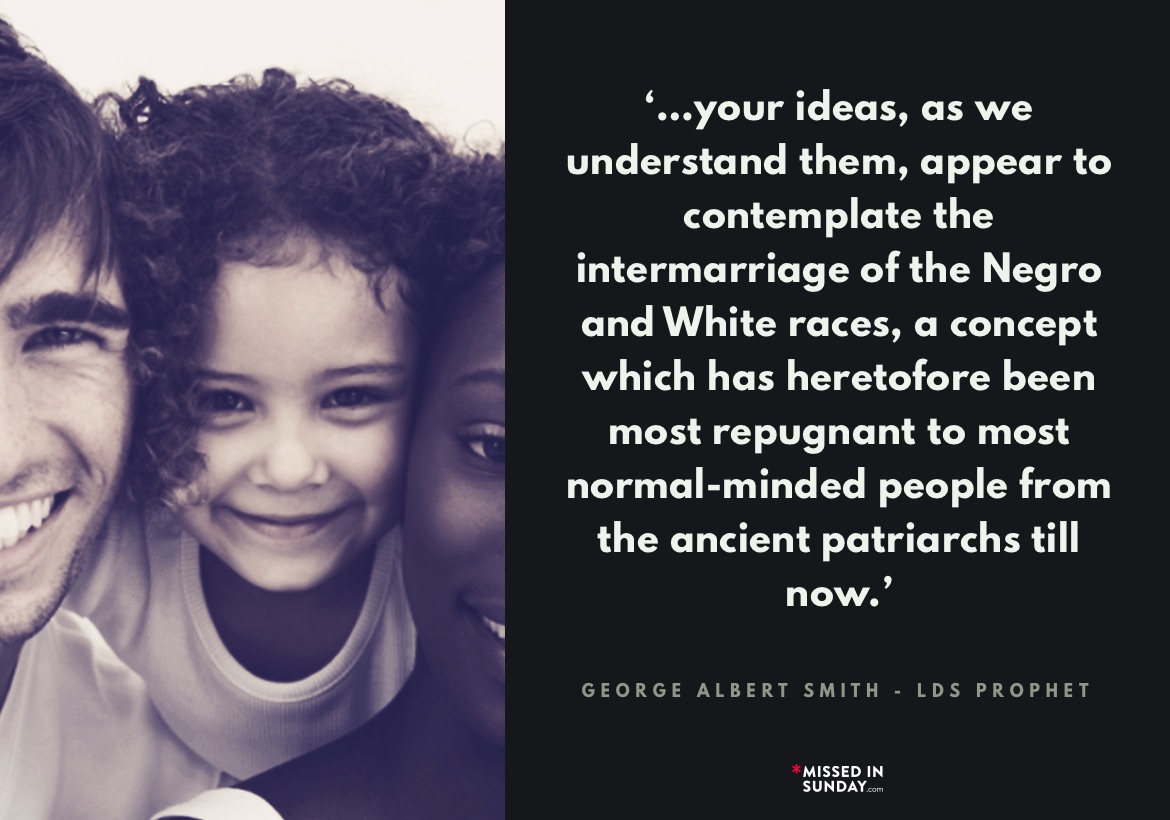A January 5, 1965 address at BYU by Spencer W. Kimball, ‘Love vs. Lust’:
“My beloved young people:
While this is a grave responsibility, and not an easy one, I am eager to discuss with you some matters of grave importance.
I love youth. I rejoice when they grow up clean and stalwart and tall. I sorrow with them when they have misfortunes and remorse and troubles.
Numerous disasters have occurred in mid-ocean by collisions of ships and sometimes with icebergs, and numerous people have gone to watery graves.
Soon, such a thing will not be possible, for ships will be equipped with radar equipment which will alert ships’ officers should a collision be imminent. A tape will be played automatically, booming from the darkened bridge: “This is an alert. This ship is approaching an object. This is an alert. This ship is approaching an object.” And the voice will not be stilled until the mate comes to the radarscope and turns the recorder off. This will enable ships to alter their courses and save lives.
I believe our young people are wholesome and basically good and sound; but they, too, are traveling oceans which to them are at least partially uncharted, where there are shoals and rocks and icebergs and other vessels, and where great disasters can come unless warnings are heeded.
Yesterday as my jet plane soared in the air gaining altitude, the voice of the stewardess came clearly over the loud-speaker: “We are moving into a storm area. We shall skirt the danger, but there may be some turbulence. Be sure your seat belts are securely fastened.”
And, as a leader of the Church and in a measure being responsible for youth and their well-being, I raise my voice to say to the youth: “You are in a hazardous area and period. Tighten your belts, hold on, and you can survive the turbulence.”
I interview thousands of young people and many seem to flounder. Some give excuses for their errors and indulge in unwarranted rationalizations. Today I hope I may be able to clarify, at least in some areas, the stand of the God of Heaven and His Church on some vital issues.
May I speak first of words and relate them to my theme? There is magic in words properly used. Some people use them accurately, while others sloppily.
Words are means of communication, and faulty signals give wrong impressions. Disorder and misunderstandings are the results. Words underlie our whole life and are the tools of our business, the expressions of our affections, and the records of our progress. Words cause hearts to throb and tears to flow in sympathy. Words can be sincere or hypocritical. Many of us are destitute of words and, consequently, clumsy with our speech, which sometimes becomes but babble. Paul said:
Except ye utter by the tongue words easy to be understood, how shall it be known what is spoken? for ye shall speak into the air. (1 Cor. 14:9.)
And then Peter speaks of Paul and says of his epistles:
“. . . in which are some things hard to be understood, which they that are unlearned and unstable wrest, as they do also the other scriptures, unto their own destruction. (2 Pet. 3:16.)
Touring foreign lands, one comes to realize his utter helplessness without understandable words and symbols.
The workmen engaged in building the Tower of Babel were craftsmen, skilled in their trades. Take away their tools: they will replace them. Take away their skills: they will learn anew. But take away their means of communication with one another and the building of the tower has to be abandoned. (Royal Bank of Canada Letter.)
Words which confuse the hearer or reader are worse than valueless. A reasonable vocabulary of well-chosen words provides us with shadings of meaning and enables us to speak finely instead of coarsely.
Words which are synonyms have much in common but still have peculiar application, such as “child and urchin,” “hand and fist,” “misstatement and lie.” Now, note the difference in the four-word sentences: “John looked at Mary”; “John glanced at Mary”; “John gazed at Mary”; “John glared at Mary.”
A true definition of style is, “Proper words in proper places with thoughts in proper order.”
The plain way of writing conceals great art. As you avoid pomposity, ambiguity and complexity, you attain simplicity, which is the greatest cunning. It conveys proper meaning into the minds of others straight away, without effort for them. They get a feeling of sincerity and integrity, for who can be suspicious of the motives of one who speaks plainly? “Sour notes do not become sweet because the musician is in white tie and black tails.”
Words should be kind and gentle or firm and bold, according to the need of the moment. Words which betray are unkind and words which befuddle are frustrating.
Some people have excellent ideas, but their thoughts either beat about aimlessly in their heads, finding no communication package in which to emerge, or they come out distorted and in fragments.
Every person should say what he means, speaking clearly and distinctly. The politician particularly should pay attention to the niceties of language so as to address the voters meaningfully and not deceitfully. The deforming of meaning for political ends has become too commonplace. In our lives, we should express clearly what we have in mind, just as a purchaser would say: “I wish to buy three rolls of Kodak Ektachrome X Color Film, Daylight Ex. 127.” And the clerk knows exactly what is wanted.
So in social life, and certainly in morals, there should be a careful selection of the right word to express the thought.
It is reported that a Russian child has a primer of 2,000 words in the first grade and of 10,000 words in the fourth, while his opposite number in the United States has a primer of 1,800 words; and that the Russian child is reading Tolstoy while the same aged child in the United States is working his way through a book entitled, A Funny Sled. This charge is made in an article in Horizon of July, 1963.
Even examinations now in many cases do not require expressions by students. They may place an “X” in an appropriate square and avoid intellectual effort in marshalling thoughts and expressing them coherently, and have about a fifty percent chance of being right even in a guess.
Without discipline, language declines into flabby permissiveness, into formlessness and mindlessness. It deteriorates into what the late James Thurber called “our oral culture of pure babble.”
Now, you may wonder why I have introduced my talk with the subject of words. May I lead you out with a few four-letter words to think about: fine, fire; good and grow; home, hide, hell, help; and tire, tide, tell and toll; wilt, wish, weak, worn, and weep. Then, there are these: limp, life, live, lurk, love and lust.
Ah! Here I have finally found the two words on which I wish to dwell: love and lust-words strong and powerful-words which are life and death words-love and lust.
Let me begin with a story. Across the desk sat a handsome, young nineteen-year-old and a beautiful, shy, but charming eighteen-year-old. They appeared embarrassed, apprehensive, near-terrified. He was defensive and bordering on belligerency and rebellion. There had been sexual violations throughout the summer and intermittently since school began, and as late as last week. I was not so much surprised. I have had these kinds of visits many times; but what did disturb me was that they seemed little, if any, remorseful. They admitted they had gone contrary to some social standards, but quoted magazines and papers and speakers approving pre-marital sex and emphasizing that sex was a fulfillment of human existence.
Finally, the boy said, “Yes, we yielded to each other, but we do not think it wrong because we love each other.” I thought I had misunderstood him. Since the world began, there have been countless immoralities, but to hear them justified by Latter-day Saint youth shocked me. He repeated, “No, it is not wrong because we love each other.” Here was one of those misused four-letter words.
They had repeated this abominable heresy so often that they had convinced themselves, and a wall of resistance had been built, and behind this wall they stubbornly stood almost defiantly. If there had been blushes of shame at first, such had been neutralized with their logic. Deeply entrenched were they in this rationalization. Had they not read in some university papers of the new freedom where pre-marital sex was sanctioned, at least not forbidden? Did they not see the looseness in every show, on every stage, on TV screens and magazines? Had they not discussed this in the locker room and in private conversation? Had it not been fairly well established, then, in their world, that sex before marriage was not so wrong? Did there not need to be a trial period? How else could they know if they would be sexually compatible for marriage ? Had they not, like numerous others, come to regard sex as the basis for living ?
And a proverb came to my mind:
Such is the way of an adulterous woman; she eateth, and wipeth her mouth, and saith, I have done no wickedness. (Prov. 30:20.)
In their rationalization they have had much cooperation, for, as Peter said:
“… there shall be false teachers among you, who privily shall bring in damnable heresies and bring upon themselves swift destruction. And many shall follow their pernicious ways. . .” (2 Pet. 2:1-2.)
And Peter says further:
“. . . they that are unlearned and unstable wrest, . . . the other scriptures, unto their own destruction.” (2 Pet. 3:16.)
And here they are, false teachers everywhere, using speech and pornographic literature, magazines, radio, TV, street talk-spreading damnable heresies which break down moral standards, and this to gratify the lusts of the flesh.
Lucifer in his diabolical scheming deceives the unwary and uses every tool at his command. Seldom does one go to a convention, a club meeting, a party or social gathering without hearing vulgarity, obscenity and suggestive stories.
Peter again cautioned us:
Be sober, be vigilant; because your adversary, the devil, as a roaring lion, walketh about, seeking whom he may devour. (1 Pet. 5:8.)
And the Savior said that the very elect would be deceived by Lucifer if it were possible. He will use his logic to confuse, and his rationalizations to destroy. He will shade meanings, open doors an inch at a time, and lead from purest white through all the shades of gray to the darkest black.
Young people are confused by the arch deceiver who uses every device to deceive them.
This young couple looked up rather startled when I postulated firmly and with positiveness, “No, my beloved young people, you did not love each other. Rather, you lusted for each other.” And here was the other misused word.
Paul told Titus:
Unto the pure all things are pure: but unto them that are defiled and unbelieving is nothing pure; but even their mind and conscience is defiled.
They profess that they know God; but in works they deny him, being abominable, and disobedient, and unto every good work reprobate. (Titus 1:15-16.)
I am sure that Peter and James and Paul found it unpleasant business to constantly be calling people to repentance and warning them of dangers, but they continued unflinchingly. So we, your leaders, must be everlastingly at it; if young people do not understand, then the fault may be partly ours. But, if we make the true way clear to you, then we are blameless.
If when he [the watchman] seeth the sword come upon the land, he blow the trumpet, and warn the people;
Then whosoever heareth the sound of the trumpet, and taketh not warning; if the sword come, and take him away, his blood shall be upon his own head.
He heard the sound of the trumpet, and took not warning; his blood shall be upon him. But he that taketh warning shall deliver his soul.
But if the watchman see the sword come, and blow not the trumpet, and the people be not warned; if the sword come, and take any person from among them, he is taken away in his iniquity; but his blood will I require at the watchman’s hand. (Ezek. 33:3-6.)
So, I wish today to help define meanings of words and acts for you young people, to fortify you against error, anguish, pain and sorrow.
The boy and girl sat still and respectfully. I was not sure if they were comprehending. Apparently, their wrong concepts had been bolstered so long and firmly it was hard for them to change immediately.
Now we talked again about words-short words like lift and lean, hide and lurk, flee and stay, lose and gain, fall and rise, open and shut, lure and save, lose and gain, live and dead, hell and home and again, love and lust. The beautiful and holy word of love they had defiled until it had degenerated to become a bedfellow with lust, its antithesis.
As far back as Isaiah, deceivers and rationalizers were condemned:
Woe unto them that call evil good, and good evil; that put darkness for light, and light for darkness; that put bitter for sweet, and sweet for bitter!
Woe unto them that are wise in their own eyes, and prudent in their own sight! (Isa. 5:20-21.)
And, we might add: Woe unto those who wrest the scriptures to interpret them to cover their weaknesses. The young couple had excused and justified their transgression on the grounds that they loved each other. Is there a word in the dictionary more misused and prostituted than the word “love”?
Many of the modern terms for sin were not used in the scriptures and in olden days, and some people, therefore, excuse their contaminations because the age-old transgressions were not identified with modern terms. But, if one reads the scriptures carefully, all sins are denounced there in every shade of error. Again, the great Peter said:
Dearly beloved, I beseech you as strangers and pilgrims, abstain from fleshly lusts, which war against the soul. (I Peter 2: 11.)
Surely, every soul who has reached the age of accountability, and especially those who have received the Holy Ghost after baptism, knows the difference; but so often we hear what we want to hear and we see what we want to see. There is a definite war against the soul when evil is perpetrated. And I challenge any normal baptized person who says he did not know he was doing wrong. There is no compatibility between sin and righteousness, between guilt and peace.
Paul charged the Corinthians:
Flee fornication …. He that committeth fornication sinneth against his own body. (1 Cor. 6:18.)
And in order to avoid the disasters, Paul cautioned: “Do not company with fornicators.” And he urged people to keep good company and not eat with the evil ones who would tempt them, and then concludes: “Therefore put away from among yourselves that wicked person.” (See 1 Cor. 5:9-13.)
Oh, if our young people could learn this basic lesson to always keep good company, to never be found with those who tend to lower our standards! Let every youth select associates who will keep him on tiptoes, trying to reach the heights attained. Let him never choose associates who encourage him to relax in carelessness.
We must repeat what we have said many times: Fornication with all its big and little brothers and sisters was evil and wholly condemned by the Lord in Adam’s day, in Moses’ day, in Paul’s day, and in our own day. The Church has no tolerance for any kind of perversions. The Lord has indicated His lack of tolerance, stating:
For I the Lord cannot look upon sin with the least degree of allowance. (D&C 1:31.)
Yet, He loves the repentant one. Paul said that even the converted Gentiles should be taught to “abstain from pollutions of idols, and from fornication,” and other deviations. (Acts 15:20.) He wrote the Romans that corrupt practices called fornication were extant among them. He exhorted the Galatians, lashing out against the “works of the flesh . . adultery, fornication, uncleanness, lasciviousness,” and then he added “that they which do such things shall not inherit the kingdom of God.” (Gal. 5:19-21.)
They are like the:
Raging waves of the sea, foaming out their own shame; wandering stars, to whom is reserved the blackness of darkness for ever. (Jude 13.)
These are murmurers, complainers, walking after their own lusts; and their mouth speaketh great swelling words, having men’s persons in admiration because of advantage. (Jude 16.)
Let it be known positively that the Church is not softening its standards, nor abandoning its Godgiven practices. Those who interpret the scriptures to justify their own pernicious ways are spoken of in the Book of Mormon:
. . . They are led about by Satan, even as chaff is driven before the wind, or as a vessel is tossed about upon the waves, without sail or anchor, or without anything wherewith to steer her; and even as she is, so are they. (Mormon 5:18.)
My young couple who had so seriously sinned were listening, and I reminded them of the statement of Mormon, where the Nephites, guilty of fiendish, abominable acts, had taken prisoners the daughters of the Lamanites, and:
After depriving them of that which was most dear and precious above all things, which is chastity and virtue-(Moroni 9:9).
They tortured and murdered them.
When the scriptures are so plain, how can anyone justify immoralities and call them love? Is black white? Is evil good? Is purity filthiness?
As I looked the boy in the eye, I said, “No, my boy, you were not expressing love when you took her virtue.” And to her, I said, “There was no real love in your heart when you robbed him of his chastity. It was lust that brought you together in this most serious of all practices short of murder. Paul said, ‘Love worketh no ill to his neighbour.’ (Rom. 13:10.)”
I continued, “If one really loves another, one would rather die for that person than injure him. At the hour of indulgence, pure love is pushed out one door while lust sneaks in the other. Your affection has been replaced with biological materialism and uncontrolled passion. You have accepted the doctrine which the devil is so eager to establish-that sex relations are justified on the grounds that it is a pleasurable experience in itself and is beyond moral consideration.
“When the unmarried yield to the lust which induces intimacies and indulgence, they have permitted the body to dominate and have placed the spirit in chains. It is unthinkable that anyone could call this love. You have ignored the fact that all situations or conditions or actions whose pleasures or satisfactions end with the termination of the act will never produce great peoples nor build great kingdoms.
“In order to live with themselves, people who transgress must follow one path or the other of two alternatives. The one is to sear the conscience and dull the sensitivity with mental tranquilizers so that the transgression may be continued; the other is to permit remorse to lead to total conviction, repentance and eventual forgiveness.”
This conviction is the element of which my two young visitors were quite devoid. They were somewhat like the unrepentant of whom Isaiah spoke:
And the mean man boweth not down, and the great man humbleth himself not, therefore, forgive him not.(2 Ne. 12:9.)
No one can ever be forgiven of any transgression until there is repentance, and one has not repented until he has bared his soul and admitted his intentions and weaknesses without excuses or rationalizations. He must admit to himself that he has grievously sinned. When he has confessed to himself without the slightest minimizing of the offense, or rationalizing its seriousness, or soft-pedaling its gravity, and admits it is as big as it really is, then he is ready to begin his repentance; and any other elements of repentance are of reduced value, until the conviction is established totally, and then repentance may mature and forgiveness may eventually come.
Because of this widespread tolerance toward promiscuity, this world is in grave danger. When evil is decried and forbidden and punished, the world still has a chance. But when toleration for sin increases, the outlook is bleak and Sodom and Gomorrah days are certain to return.
We were in Los Angeles years ago when the news broke of the illicit affair of a certain movie actress, from which she became pregnant. Because of her popularity, it was big news in heavy headlines in every paper in the land. We were not so surprised at her adultery-it was reported to be common in Hollywood as well as in the world generally. But that such dissoluteness should be approved and accepted by society shocked me. The Los Angeles papers took a poll of the people-club women and ministers, employers and employees, stenographers and teachers and housewives-and almost without exception, as though it were a child’s indiscretion, these community leaders found little fault and criticized as “puritanical” and “victorian” those who disapproved. “Let her live her own life,” they said. “And, why should we interfere with people’s personal liberties?” In state and nation and across the seas, toleration for sin is terrifying.
There is no shame. Isaiah again strikes the sin:
The shew of their countenance doth witness against them; and they declare their sin as Sodom, they hide it not. Woe unto their soul! for they have rewarded evil unto themselves. (Isa. 3:9.)
That the Church’s stand on morality may be understood, we declare firmly and unalterably it is not an outworn garment, faded, old-fashioned, and threadbare. God is the same yesterday, today and forever, and His covenants and doctrines are immutable; and when the sun grows cold and the stars no longer shine, the law of chastity will still be basic in God’s world and in the Lord’s Church. Old values are upheld by the Church not because they are old, but rather because through the ages they have proved right. It will always be the rule.
I continued with the young couple, saying, “The youth of today are seeing too many ‘adults only’ movies which exploit sex. There are too many open dormitories on campus, too many mattress parties for adolescents, too many girls with extreme dresses, tight sweaters, calling attention to sex. And, there are too many young men with tight, suggestive attire. Youth generally have heard too many advertisements over radio and television and seen too many in newspapers and on billboards and in magazines where sex is used as a stimulus in selling. There have been too many parked automobiles. They have read too many novels where sex is the central, dominant theme.”
“What kind of a world would we have,” I asked these young people, “if this heresy which you have espoused of pre-marital sex looseness and alleged free love were in order?” The world, already ill, would expire.
We are not speaking of a sex-free world any more than we are speaking of a sexy world, for a sexless civilization would die in one generation if indeed it could be born. A sexy civilization will die of its own rottenness when it is ripe in iniquity. Pure sex life in proper marriage is approved. There is a time and an appropriateness for all things which have value. In ancient days, one city or one civilization could disintegrate without seriously disturbing other parts of the world, but today our communication and transportation facilities make the whole world one community.
In our mass-production age in recent years, “we have witnessed the reduction of persons to things in a code number, a subscriber, a punched card. Each reduction indicates that the person is expendable, replaceable.. . .” “A person is not a function nor a means nor an instrument, but an end in himself; but the world speaks with a voice amplified by a thousand television stations and a half million printing presses.” It advances the biological materialism that man is a consuming, reproducing function, a collection of skills, or a unit in the labor force. This renders men functionaries and destroys their being and loses for them their self, dwarfed by a gigantic universe out there. This is hauntingly true as people are “used” to gratify physical passions in illegitimacy.
This repulsive sense of “thinghood” is portrayed well in a few lines from John Pauker in the New Republic, January 5, 1963:
I looked and looked again. There were no people.
The people had disappeared. The people were gone.
But the things they had created were still there.
A suit of clothes and a gown walked arm in arm.
With a dog at the end of a leash. The dog was there
And snarling. In the street, vehicular traffic
Flowed as usual but without drivers or riders ….
Electric razors razed and revolvers fired
As usual. The things went through their paces
And seemed to be enjoying themselves highly.
I longed to look in a mirror but did not dare.
We really do not love things. We use things like doormats, automobiles, clothing, machines; but we love people by serving them and contributing to their permanent good. The Lord seemed to recognize this when He said:
But seek ye first the kingdom of God, and his righteousness; and all these things shall be added unto you. (Matt. 6:33.)
And again, the difference was made manifest in His instructions to Peter, when He asked three times of that worthy:
Simon, son of Jonas, lovest thou me more than these?
To which Peter responded:
Yea, Lord; thou knowest that I love thee. And the answer came:
Feed my lambs. Feed my sheep. (See John 21:15-17.)
What were the things, “these things,” which took second place to his love for his Lord and his fellow men? I think they must have been ships and nets and fish and desires and wants and even passions.
Sexual encounters outside of legalized marriage render the individual a thing to be used, a thing to be exploited, and make him or her exchangeable, exploitable, expendable and throw-awayable.
And when we come before the great Judge at the bar of justice, shall we stand before Him as a thing or as a person, as a depraved body of flesh and carnal acts, or as a son of God standing straight and tall and worthy? And as we answer the vital questions, will we be able to say, “I builded, I did not tear down; I lifted, I did not pull down; I grew, I did not shrivel; I helped others grow, I did not dwarf them; I helped, I did not hinder; I loved intensely and blessed, I did not lust toward exploitation to injure”?
My young couple were still rationalizing and excusing themselves, and I said again, “Every kind of sex exploit for the unmarried from the first lustful stirrings of passions relating to self or to others is a sin, and thought habits are perverted and lives are blemished, and God’s laws are broken, and penalties will be paid.”
Like some high pressure salesmen who claim far more for their product than can possibly be delivered, sex exploitation promises what it can never produce nor deliver. So, outside of marriage, improper sex life can bring only disappointment, disgust, and usually rejection “while it propels its participants down the long corridor of repeated encounters which are destined to fail.”
Very often the couple-the two people who have been promiscuous, who have been wanton, who have crossed the lines of propriety-become disgusted with each other and discontinue associations altogether. How many come to dislike, if not to hate, the partner in sin.
Illicit sex is a selfish act, a betrayal, and is dishonest. To be unwilling to accept responsibility is cowardly, disloyal. Marriage is for time and eternity. Fornication and all other deviations are for today, for the hour, for the “now.” Marriage gives life. Fornication leads to death. Pre-marital sex promises what it cannot possibly produce or deliver. Rejection is often the fruit as it moves its participants down the long highway of repeated encounters.
The Eighth of the Ten Commandments says: “Thou shalt not steal.” Yet the immoral act is exploitation and robbery in its worst expression.
It is taking with or without permission the most priceless, the most unrecoverable, the most unreturnable possession of an individual-chastity and virtue. In one dark, unglorious hour, lives can be taken or shattered; but in a long lifetime, health lost may possibly be regained, wealth lost may someday be accumulated again, freedom lost may be fought for and possibly recovered, but chastity gone is gone forever, and virtue stolen cannot be returned. Is not this one of the prime reasons why this forbidden thing is so heinous like murder, for neither can ever be wholly compensated nor returned nor undone?
“THOU SHALT NOT COMMIT ADULTERY” (and we add its twin, FORNICATION) and also “THOU SHALT NOT KILL” came ‘ringing down from Mount Sinai. One can take a life easily but he can never restore that life. And so it is that when the pangs of futility and remorse impress the uselessness of the act, there must come the time when the fornicator or adulterer, like the murderer, wishes he could hide-hide from all the world, from all the ghosts and especially from his own-and there is no place to hide. There are dark corners and hidden spots and closed cars in which the transgression can be committed, but to totally conceal is impossible. There are no nights so dark, no rooms so tightly locked, no canyons so closed in, no deserts so uninhabited that one can find a place to hide his sins from himself nor from his Lord. Eventually, one must still face himself and his Great Judge.
Cain had difficulty hiding. The Lord had asked, “Where is Abel, thy brother?” And Cain had boldly replied, “I know not. Am I my brother’ s keeper?” Did he think he was deceiving the Lord or himself? The next question was no simple inquiry, but an accusation and a condemnation, “What hast thou done? the voice of thy brother’s blood crieth unto me from the ground . . . which hath opened her mouth to receive thy brother’s blood from thy hand. “. . . a fugitive and a vagabond shalt thou be in the earth. “And Cain said unto the Lord, My punishment is greater than I can bear. “Behold, thou hast driven me out this day from the face of the earth.” (Gen. 4:9-14.)
That was true of murder. In a lesser degree, it is true of illicit sex, which, of course, includes all petting, fornication, adultery, homosexual acts, and all other perversions. The Lord may say to offenders, as He did to Cain, “What hast thou done?” The children thus conceived make damning charges against you; the companions who have been frustrated and violated condemn you; the body that has been defiled cries out against you; the spirit which has been dwarfed convicts you. You will have difficulty throughout the ages in totally forgiving yourself.
After looking down at the crumpled body at his feet, and especially after the torments of hell began to persecute him and the ghost of his brother began to follow him, Cain must have wished that he could give Abel’ s life back. The Lord did not curse Cain; it was Cain who, breaking eternal law, cursed himself. And every man or woman who is guilty of moral misconduct may look down upon defiled bodies, his own and others; he may recognize frustrated and distorted minds; and as the ghosts begin to follow, he is certain to wish with all his heart that he could give back chastity and restore tranquility and peace in the minds and hearts and lives of those whom he has damaged.
From the same tablet, from the same Sinai, came the Laws of God. After creating man in His own image, male and female, God then performed the holy marriage ceremony for eternity for His Adam and Eve. And in this beginning, He established a pattern of sex life consistent with all reason and propriety. In that first marriage blessing, the Lord commanded these two beings, who were complementary to each other, to multiply by being fruitful and bringing children into the world. Cain and Abel were only two of their many sons and daughters. This command did not give license to merely satisfy biological urges, for God followed it with the command,
Therefore shall a man leave his father and his mother, and shall cleave unto his wife: and they shall be one flesh. (Gen. 2:24.)
To cleave is to adhere closely, to cling; and the Lord gave as the purpose for their cleaving, the peopling of the earth, the replenishing of the earth, the subduing of the earth, the dominion over the earth. There was high purpose in the creation and in the proper associations of husband and wife, but intimacies could never be defended outside of marriage.
The pre-marital sex act is a deception. It is a lie. The Lord asked:
“If a son shall ask bread of any of you that is a father, will he give him a stone? or if he ask a fish, will he . . . give him a serpent? Or if he shall ask for an egg, will he offer him a scorpion? (Luke 11:11-12.)
Bread is the staff of life, while a stone is lifeless, indeed, sometimes death dealing. The fish as food builds and sustains the body, as does the egg; but the serpent destroys life and is the symbol of death. Love is promised and is delivered.
Proper sex functions bring posterity, responsibility, and peace; but pre-marital sex encounters bring pain, the loss of self-esteem, spiritual death, unless there is a total, continuing repentance.
What are the fruits of immorality? Instead of multiplying and replenishing the earth, every effort is made to avoid conception and the birth of progeny. Since Adam no soul has ever been made happy by transgressing. The Lord said:
“Every tree that bringeth not forth good fruit is hewn down, and cast into the fire. Wherefore by their fruits ye shall know them.” (Matt. 7:19-20.)
“And now also the ax is laid unto the root of the trees.” (Matt. 3:10.)
And the warning is repeated:
Beware of false prophets, which come to you in sheep’s clothing, but inwardly they are ravening wolves. (Matt. 7:15.)
Could there possibly be a single good fruit which comes from pre-marital indulgence?
Our great accumulated scientific knowledge about our bodies and their functioning, and our minds and their operating, seems not to have been translated into righteousness. As an example, all that we have learned of late from research about the ill effects of tobacco has done little to discourage its use, even as the holy revelations were ignored. And all that has been said from a medical and scientific standpoint about the social diseases seems to have deterred people very little from immorality-in fact, little more if any than the commandments of the Lord. For, in a recent local paper, we read of the great increase in VD in the big cities of our land.
It is not so much what we know but what we do about what we know. Dr. Jenkins of the Utah State Health Department is quoted as saying that gonorrhea and syphilis epidemics are raging at this very moment in thirty of the nation’s largest cities.
The Deseret News of December 13, 1964, quotes an Associated Press writer out of Washington as saying: “Some experts see a ‘general decline in morals’ and point to the sharpest rises of V.D. among teenagers.”
We live in a sterile age, or so it seems-an age when young people turn to sex to escape loneliness, frustration; insecurity and lack of interest. “What can we do?” the youth complain. They are little interested in reading and family associations and youth socials and the community dance. They must have something more exciting. Long ago they ceased making their own entertainment which could be as clean and worthy as they wished to make it. Today, then, they look at television and go to shows in town, and to the so-called “passion pits,” where they are over-stimulated sexually. Oh, for a generation of youth who would move back to simplicity, away from the “canned” programs in most of which are ingredients to stimulate and stir the human passions!
When we talk of sex, our first thought is adultery or fornication; but our second one, and close on its heels, is the sex stimulation to self and others, sometimes called “petting.” It is a damaging and a damning transgression in its own right, and then, of course, it is also the gateway to the final acts of fornication and adultery.
And the world will go on dying-destroying itself until people begin to use words in their true meanings, “calling a spade, a spade” and not a spoon; calling “petting” a deep sin and not a harmless diversion– until we rip its disguising mask from its ugly face and strip from its lustful body the sheep’s clothing with which the vicious wolf has concealed his mean self.
The young man is untrue to his manhood who promises popularity, good times, security, fun, and even love, when all he can give is passion and its diabolical fruits-guilt complexes, disgust, hatred, abhorrence, eventual loathing, and possible pregnancy without legitimacy and honor. He pleads his case in love and all he gives is lust. Likewise, the young lady sells herself cheap. She asks him for a fish; he gives her a serpent. He asks her for bread and she gives him a stone. She reaches for figs, and thorns are pressed into her hand. He would have grapes but gets a bramble bush. She asks for eggs and he stings her with a scorpion. The result is damage to life and canker to the soul.
Reverend Lawrence Lowell Gruman says: “It is indeed a quaint morality that belittles sex and shrinks human beings to pleasure-seeking dwarfs, for if sex is good, as eating and sleeping are good, then it, too, has specific limits and an appropriate place and that place is within marriage.”
And still these young people talk of love. What a corruption of the most beautiful term! The word is prostituted also in the realm of homosexuality. Both are in the realm of taking, not giving; killing, not saving; destroying, not building. The fruit is bitter because the tree is corrupt. Their lips say, “I love you.” Their bodies say, “I want you.” Love is kind and wholesome. To love is to give, not to take. To love is to serve, not to exploit.
We sing of love in popular songs when we really are coveting and wanting and lusting. Why do people deceive themselves and others? Why not call it what it actually is?
Undoubtedly Potiphar’s wife flattered Joseph and expressed her alleged love for him at first. When this failed, she tried force and intrigue; and, failing there, she tried to cover with blackmail. With such a clear conscience, Joseph’s dark dungeon must have been to him a pleasant prison. At least here he was safe from exploitation and contamination. She said to Joseph, “I love you.” What she wanted was not Joseph but his handsome, appealing body.
Dr. Gruman says: “The sexual encounter ought to be a full and free affirmation of the other person, …a total commitment to him, and that spells permanence and permanence is spelled out in marriage ….
If you love another person fully, wholly, unselfishly, then respect the sexual life of that person by surrounding him with marriage. Using and being used, we fail as human beings and sons of God.”
What is love? Many people think of it as mere physical attraction and they casually speak of “falling in love” and “love at first sight.” This may be Hollywood’s version and the interpretation of those who write love songs and love fiction. True love is not wrapped in such flimsy material. One might become immediately attracted to another individual, but love is far more than physical attraction. It is deep, inclusive and comprehensive. Physical attraction is only one of the many elements, but there must be faith and confidence and understanding and partnership. There must be common ideals and standards. There must be a great devotion and companionship. Love is cleanliness and progress and sacrifice and selflessness. This kind of love never tires nor wanes, but lives through sickness and sorrow, poverty and privation, accomplishment and disappointment, time and eternity. For the love to continue, there must be an increase constantly of confidence and understanding, of frequent and sincere expression of appreciation and affection. There must be a forgetting of self and a constant concern for the other. Interests, hopes, objectives must be constantly focused into a single channel.
For many years, I saw a strong man carry his tiny, emaciated, arthritic wife to meetings and wherever she could go. There could be no sexual expression. Here was selfless indication of affection. I think that is pure love. I saw a kindly woman wait on her husband for many years as he deteriorated with muscular dystrophy. She waited on him hand and foot, night and day, when all he could do was to blink his eyes in thanks. I believe that was love.
I knew a woman who carried her little unfortunate child until the body was too heavy to carry, and then she pushed her in a wheel chair for the following years until her death. The deprived child could never express an appreciation. It seems to me that that was love. Another mother visited regularly her son who was in the penitentiary. She could receive nothing from him. She gave much, all she had.
If anyone feels that petting or other deviations are demonstrations of love, let him ask himself: “If this beautiful body which I have misused suddenly became deformed, or paralyzed, would my reactions be the same ? If this lovely face were scarred by flames, or this body which I have used suddenly became rigid, or this keen mind which I have enjoyed were suddenly to become blank, would I be such an ardent lover? If senility or any of its approaches suddenly fell upon my sweetheart, what would my attitudes be?” Answers to these questions might test one to see if he really is in love or if it is only physical attraction which encouraged the improper physical contacts. The young man who protects his sweetheart against all use or abuse, against insult and infamy from himself or others, could be expressing true love.
But the young man who uses his companion as a biological toy to give himself temporary satisfaction-that is lust, and is at the other end of the spectrum from love. A young woman conducts herself to be attractive spiritually, mentally and physically but will not by word nor dress nor act stir nor stimulate to physical reactions the companion beside her. That could be true love. That young woman who must touch and stir and fondle and tempt and use knows not love. That is lust and exploitation.
Sometimes, there are twins, like Jacob and Esau, and the one is hairy and crude and evil; the other is smooth and clean and personable. There were two brothers, the sons of Adam-the one, crude, selfish, evil; the other, good and faithful and worthy. Their names also were four-letter words-Cain and Abel. And such words as love and lust are direct opposites.
Speaking to my young couple, I said again, “No, it is not love if it manipulates; it is selfishness. It is not love if it neglects the welfare of the other: it is irresponsibility.
“If sex relations merely become a release or a technique and the partner becomes exchangeable, then sex returns to the compulsive animal level.
“Immorality brings generally a guilt deep and lasting. And this is a factor certainly not to be overlooked. These unresolved guilt complexes are the stuff of which mental breakdowns come, the building blocks of suicide, the fabric of distorted personalities, the wounds that scar or incapacitate individuals or families.
“The Revelator, John, gives this: And I saw the dead, small and great, stand before God; and the books were opened: and another book was opened, which is the book of life: and the dead were judged out of those things which were written in the books, according to their works. (Rev. 20:12.)
And whosoever was not found written in the book of life was cast into the lake of fire. (Rev. 20:15.)
“And a question that surely arises when that vital moment comes is, will we stand before the Great Judge and be proud or ashamed, satisfied or frustrated? And no normal youth or adult who has received the Holy Ghost can conscientiously claim that he did not know that these things were transgressions.
Pre-marital sex affairs are wrong, not because the Church declares against them, but the Church declares against them because they are wrong and because they hurt and destroy people who are God’s children.”
The young couple still was sitting before me. They mentioned a possible future marriage, apparently thinking to impress me, and were a bit startled when I said with positiveness, “You should be married-and immediately.” And I quoted this scripture:
“And if a man entice a maid that is not betrothed, and lie with her, he shall surely endow her to be his wife.” (Ex. 22:16.) and again from Moses: “If a man find a damsel that is a virgin, which is not betrothed, and lay hold on her, and lie with her, and they be found; . . . she shall be his wife; because he hath humbled her, he may not put her away all his days.” (Deut. 22:28-29.)
These two folks were “damaged goods.” They had prostituted each other. They had toyed with each other’s body. But now they were almost horrified at the suggestion of immediate marriage, and he remonstrated: “Why, we couldn’t marry. We are not ready for marriage. We haven’t completed our education. We have no employment. We are not ready to make a home. We are not prepared to buy clothing, pay rent, buy cars, employ physicians, buy groceries, pay hospital bills. We haven’t finished our education. We are not ready to assume the responsibilities of parenthood.”
And then I asked, as kindly as I could, “Then why did you precipitate yourselves into that situation? Why did you do the act which would make you parents? Why did you engage in the associations that would demand a home, employment, status? Your very irresponsible act identifies you as most immature. You do not know the meaning of responsibility, but you have pushed yourselves prematurely into adulthood. You should now meet the responsibilities as best you can. You are hardly able to walk alone as little children, and yet you are likely now to be parents. You have not passed the tests in the grade school yet, and now you are enrolled in college. You made the choice when you broke the law of chastity and gave up your virtue. That hour, freedom was replaced with tyrannical fetters. You accepted shackles and limitations and sorrows and eternal regrets when you could have had freedom with peace.”
King Benjamin said:
And now, I say unto you, my brethren, that after ye have known and have been taught all these things, if ye should transgress and go contrary to that which has been spoken, that ye do withdraw yourselves from the Spirit of the Lord, that it may have no place in you to guide you in wisdom’s paths that ye may be blessed, prospered, and preserved —
I say unto you, that the man that doeth this, the same cometh out in open rebellion against God; therefore he listeth to obey the evil spirit, and becometh an enemy to all righteousness; therefore, the Lord has no place in him, for he dwelleth not in unholy temples.
Therefore if that man repenteth not, and remaineth and dieth an enemy to God, the demands of divine justice do awaken his immortal soul to a lively sense of his own guilt, which doth cause him to shrink from the presence of the Lord, and doth fill his breast with guilt, and pain, and anguish, which is like an unquenchable fire, whose flame ascendeth up forever and ever.
And now I say unto you, that mercy hath no claim on that man; therefore his final doom is to endure a a never-ending torment.” (Mosiah 2:36-39.)
Now, it would be wholly improper to so completely condemn sex sins without explaining to those who may already have yielded to these persuasions and temptations and have defiled themselves that there is eventual forgiveness, providing, of course, that there is commensurate repentance. “The way of the transgressor is hard,” and tough and long and thorny. But the Lord has promised that for all those sins and errors outside of the named unpardonable sins, there is forgiveness. But, many people misunderstand the principle of repentance and have the misconception that the changing of a policy, the breaking of a habit, or a few prayers can bounce them back in moments or hours the long distance that they skidded over months and possibly years.
The Lord has said, “I will remember their sins no more,” and, “Thou shalt forgive them.” But sometimes it takes as long or longer to climb back up the steep hill than it did to skid down it. And it is often much more difficult.
We mentioned self-conviction above. One has not begun his repentance until that is complete. But when a total self-conviction is stirred to a new life, and prayers have been multiplied and fasting, through humility, intensified, and weeping has been sanctified, repentance then begins to grow and, eventually, forgiveness may come. The king had said that the unrepentant would have a “lively sense of his own guilt, which doth cause him to shrink from the presence of the Lord, and doth fill his breast with guilt, and pain, and anguish, which is like an unquenchable fire, whose flame ascendeth up forever and ever.” (Mosiah 2:38.)
And the Prophet Jacob said that those who reject the gospel and resist repentance would “stand with shame and awful guilt before the bar of God.” (Jacob 6:9).
A basic thought which none may overlook is the statement of the Prophet Amulek:
And I say unto you again that he cannot save them in their sins,…and he hath said that no unclean thing can inherit the kingdom of heaven; therefore, how can ye be saved, except ye inherit the kingdom of heaven? Therefore, ye cannot be saved in your sins. (Alma 11:37.)
But to those who have broken the law of chastity and who have complied as above, there is the promise of forgiveness, and the Lord charges the leaders of His Church when they have totally repented, “Thou shalt forgive them.”
And He says:
“Behold, he who has repented of his sins, the same is forgiven, and I, the Lord, remember them no more. By this ye may know if a man repenteth of his sins –behold, he will confess them and forsake them.” (D&C 58:42-43.)
Paul called attention to the Corinthian Saints:
For if the trumpet give an uncertain sound, who shall prepare himself to the battle. (1 Cor. 14:8.)
And I believe the youth of Zion want to hear the clear and unmistakable tones of the trumpet, and it is my hope that I can play the tune with accuracy and precision so that no honest person will ever be confused. I hope fervently that I am making clear the position of the Lord and His Church on these unmentionable practices.
Masturbation, a rather common indiscretion, is not approved of the Lord nor of His Church regardless of what may have been said by others whose “norms” are lower. Latter-day Saints are urged to avoid this practice.
A person is the maker of himself. He may control his own destiny, if he is normal. James Allen says:
“… A man is literally what he thinks, his character being the complete sum of all his thoughts…. Act is the blossom of thought, and joy and suffering are its fruits . . . let a man radically alter his thoughts, and he will be astounded at the rapid transformation it will effect in the material conditions of his life…”
James Allen again says:
…Man is manacled only by himself: thought and action are the jailers of Fate-they imprison, being base; they are also the angels of Freedom-they liberate, being noble.
Anyone fettered by this weakness should abandon the habit before he goes on a mission or receives the Holy Priesthood or goes in the temple for his blessings.
Sometimes masturbation is the introduction to the more serious sins of exhibitionism and the gross sin of homosexuality. We would avoid mentioning these unholy terms and these reprehensible practices were it not for the fact that we have a responsibility to the youth of Zion that they be not deceived by those who would call bad, good, and black, white.
This unholy transgression is either rapidly growing or tolerance is giving it wider publicity. If one has such desires and tendencies, he overcomes them the same as if he had the urge toward petting or fornication or adultery. The Lord condemns and forbids this practice with a vigor equal to His condemnation of adultery and other such sex acts. And the Church will excommunicate as readily any unrepentant addict.
Again, contrary to the belief and statement of many people, this sin, like fornication, is overcomable and forgivable, but again, only upon a deep and abiding repentance which means total abandonment and complete transformation of thought and act. The fact that some governments and some churches and numerous corrupted individuals have tried to reduce such behavior from criminal offense to personal privilege does not change the nature nor the seriousness of the practice. Good men, wise men, God-fearing men everywhere still denounce the practice as being unworthy of sons of God; and Christ’s Church denounces it and condemns it so long as men have bodies which can be defiled. Earlier in our treatise we quoted Peter as having said, “I beseech you . . . abstain from fleshly lusts, which war against the soul.” (1 Pet. 2:11.)
And James says:
“A double minded man is unstable in all his ways…. Blessed is the man that endureth temptation: for when he is tried, he shall receive the crown of life, which the Lord hath promised to them that love him.
“Let no man say when he is tempted, I am tempted of God: for God cannot be tempted with evil, neither tempteth he any man:
“But every man is tempted, when he is drawn away of his own lust, and enticed.
“Then when lust hath conceived, it bringeth forth sin: and sin, when it is finished, bringeth forth death.
“Do not err, my beloved brethren .”(James 1:8, 12-16.)
This heinous homosexual sin is of the ages. Many cities and civilizations have gone out of existence because of it. It was present in Israel’s wandering days, tolerated by the Greeks, and found in the baths of corrupt Rome. In Exodus, the law required death for the culprit who had sex play with animals, the deviate who committed incest, or the depraved one who had homosexual or other vicious practices.
This is a most unpleasant subject to dwell upon, but I am pressed to speak of it boldly so that no student in this University, nor youth in the Church, will ever have any question in his mind as to the illicit and diabolical nature of this perverse program. Again, Lucifer deceives and prompts logic and rationalization which will destroy men and make them servants of Satan forever.
Remember, Paul told Timothy:
For the time will come when they will not endure sound doctrine; but after their own lusts shall they heap to themselves teachers, having itching ears; And they shall turn away their ears from the truth, and shall be turned unto fables. (2 Tim. 4:3-4.)
Let it never be said that the Church has avoided condemning this obnoxious practice nor that it has winked at this abominable sin. And I feel certain that this University will never knowingly enroll an unrepentant person who follows these practices nor tolerate on its campus anyone with these tendencies who fails to repent and put his or her life in order.
May we return to words? In my Bible concordance, there are 550 listed references pertaining to love. They do not interpret it as carnal, sexual, handling, fondling, petting, perversions, nor fornication. In the same concordance, there are 53 references to adultery, and not one of them seems to connect this condemned sexual act with real affection which is love. I also found 32 references to fornication, but I found none which identified the forbidden act as holy, sacred love.
Men talk of the love act and making love and the love life when what they mean is something quite different, and there can be no proper love life outside of proper marriage.
Paul made this clear when he said,
Now the body is not for fornication, but for the Lord, and the Lord for the body. (1 Cor. 6:13.)
This would apply also to the other detestable sex manifestations named above.
And Paul further gave to the Corinthians a stinging lashing when he indicated these sins must be overcome:
Be not deceived: neither fornicators,…nor adulterers, nor effeminate, nor abusers of themselves with mankind, shall inherit the kingdom of God. (1 Cor. 6:9-10.)
Again, for clarification, let it be known that fornication is the same act as adultery, except the former pertains to unmarried people and the latter to married people. The words are often interchangeable in the Bible and the penalty of the law was death, as indicated when the Scribes and Pharisees brought to the Savior the woman taken in adultery and they indicated:
Now Moses in the law commanded us, that such should be stoned: but what sayest thou? (John 8:5.)
It is notable that the Redeemer did not negate the law, but He put His enemies to flight by a clever ruse, saying to them: He that is without sin among you, let him first cast a stone at her. (John 8:7.)
And further, there is no evidence that the Savior granted to her forgiveness. He did send her away to repent.
I do not find in the Bible the modern terms “petting” nor “homosexuality,” yet I found numerous scriptures which forbade such acts under by whatever names they might be called. I could not find the term “homosexuality,” but I did find numerous places where the Lord condemned such a practice with such vigor that even the death penalty was assessed.
And the Lord calls all such to repent. His words are most impressive:
“Therefore I command you to repent–repent, lest I smite you by the rod of my mouth…”
And we refer the reader to the balance of that reference in D&C 19:15-18.
We have stated that even this ugly practice can be overcome and can be forgiven. As one of many who might be considered authority, I quote one from the Medical World News, June 5, 1964:
The effectiveness of therapy depends on the depth of entrenchment of the perversion, as well as the strength of the patient’s desire to modify it.
This statement by the Public Health Committee of the New York Academy of Medicine agrees with our philosophy. Man is created in the image of God. He is a god in embryo. He has the seeds of godhood within him and he can, if he is normal, pick himself up by his bootstraps and literally move himself from where he is to where he knows he should be. As stated above, the longer the habit has been fostered, the harder it is to break.
To clarify the matter for those who are honest, it must be stated that it is a “damnable heresy,” as Paul says, when men claim that “God made them that way,” or that such a life is just another different but acceptable way of life. All nature, reason, scripture and revelation cry out against such a claim. But it can be corrected and overcome. May I quote from a former article of my own: “Men have come dejected, discouraged, embarrassed, near terrified and have gone out later full of confidence and faith in themselves, with self-respect returned, with the confidence of their families, their home ties strengthened and ready to manfully take their part in proper society and even in the Church on an approved cured basis.
“In some cases, they have been men with families, and we have had wives come in to tearfully thank us for bringing their husbands back to them. Wives have not always known what had been wrong, but they had sensed something serious and realized that they had lost their husbands. We have seen men come first with downward glances and leave months later looking us straight in the eye. We have had them admit after the first interview, ‘I am glad that I was arrested. I have tried and tried to correct my error but knew I would have to have help and had not the courage to ask for it.’ In a few months, some have totally mastered themselves, while others linger on with less power and requiring more time to make the total comeback. We realize that the cure is no more permanent than the individual makes it so, and is like the cure for alcoholism, subject to continued vigilance. To such men, we say, ‘Physician, heal thyself,’ and promise him if he will stay away from the haunts and the temptations and the former associates, he may heal himself, cleanse his mind, and return to his normal pursuits and a happy state. The cure for this malady lies in self-mastery, which is the fundamental basis of the whole gospel program.”
“God made me that way,” some say, as they rationalize and excuse themselves for their perversions. “I can’t help it,” they add. This is blasphemy. Is he not made in the image of God, and does he think God to be “that way”? Man is responsible for his own sins. It is possible that he may rationalize and excuse himself until the groove is so deep he cannot get out without great difficulty, but this he can do. Temptations come to all people. The difference between the reprobate and the worthy person is generally that one yielded and the other resisted. It is true that one’s background may make the decision and accomplishment easier or more difficult, but if one is mentally alert, he can still control his future. That is the gospel message-personal responsibility.
To the person blaming his perversions on his parents-man is punishable for his own sins. He can, if normal, rise above the frustrations of childhood and stand on his own feet and answer roll call.
And if the yielding person continues to give way numerous times, he may finally reach the point of no return where he does not want to return. And the Lord says, “My Spirit shall not always strive with man, saith the Lord of Hosts .” (D&C 1:33 .)
The doctors whose report is quoted above state without equivocation, “The homosexual is not a special order of creation.” (For further consideration of this subject, the reader is referred to the address “A Counseling Problem in the Church” by the same author, given to the seminary and institute instructors of the Church, July 16, 1964.) [Available only at the Office of Institutes and Seminaries, Brigham Young University.]
And then, I found the 550 references to love. They had related generally to pure, holy love. Sometimes it was called charity. Lust and carnal desires were not mentioned. I found where Paul said that to have charity or real love is greater than to be a prophet, to understand mysteries, or to have great knowledge. It is greater than to have much faith, or extended power even to remove mountains. And in following the concordance on this subject of love, Paul contrasted the two four-letter words for Timothy:
Flee also youthful lusts: but follow righteousness, faith, charity, peace, with them that call on the Lord out of a pure heart. (2 Tim. 2:22.)
And Peter said that charity or love would cover a multitude of sins. (See 1 Pet. 4:8.)
And from the Song of Solomon of Solomon comes this:
For love is strong as death; jealousy is cruel as the grave: the coals thereof are coals of fire, which hath a most vehement flame. (Song of Solomon 8:6.)
Jeremiah quotes the Lord: “I have loved thee with an everlasting love.” (Jer. 31:3.)
And Ezekiel contrasts these words of love and lust:
“The people . . . hear thy words, but they will not do them: for with their mouth they shew much love, but their heart goeth after their covetousness.” (Ezek. 33:31.)
As we speak of real love, a new concept comes into our minds: The Lord said:
By this shall all men know that ye are my disciples, if ye have love one to another. (John 13:35.)
And, He continues:
This is my commandment, That ye love one another, as I have loved you. Greater love hath no man than this, that a man lay down his life for his friends. (John 15:12-13.)
And John said:
We know that we have passed from death unto life, because we love the brethren. He that loveth not his brother abideth in death. (1 Jn. 3:14.)
And in the Beatitudes, the Lord said:
Ye have heard that it hath been said, Thou shalt love thy neighbor, and hate thine enemy. But I say unto you, Love your enemies, bless them that curse you, do good to them that hate you, and pray for them which despitefully use you, and persecute you. (Matt. 5:43-44.)
In none of these quotes is the slightest implication of bodily contact, of lust, of desire, of passion. Certainly, this is the test of love. It is honor and integrity and obedience.
And Paul, speaking to the Saints, said: “Husbands, love your wives .”
This is no carnal commandment. There is no sex in this command, for they were already legal partners.
And then he continues:
“…even as Christ also loved the church, and gave himself for it; . . . So ought men to love their wives as their own bodies. He that loveth his wife loveth himself. For no man ever yet hated his own flesh …”(Ephesians 5:25, 28-29.).
And as Paul continues, he says:
For this cause shall a man leave his father and mother, and shall be joined unto his wife, and they two shall be one flesh. (Eph. 5:31.)
The proper sexual life between husband and wife is only a part of this important commandment. When a man and a woman love the spouse as they love themselves, only rich and wonderful fruits come from such a tree.
And Paul, speaking to Titus, exhorts:
“The young women to be sober, to love their husbands, to love their children. To be discreet, chaste, keepers at home, good, obedient to their own husbands….” (Titus 2:4-5.)
Can you see anything vulgar, destructive, earthy, fleshly or carnal in any of these teachings? They loved their husbands and then their children. This real love has no lust involved. And then, we have the great examples:
For God so loved the world, that he gave his only begotten Son, that whosoever believeth in him should not perish, but have everlasting life. (John 3:16.)
This was the Savior of the world, who with His supreme love made the supreme sacrifice and gave a life that no one could take from Him, because He loved us so. This is love-sacred, holy love.
And now, my dear young people, I have spoken frankly and boldly against the sins of the day. Even though I dislike such a subject, I believe it necessary to warn the youth against the onslaught of the arch tempter-who, with his army of emissaries and all the tools at his command, would destroy all the youth of Zion, largely through deception, misrepresentation, and lies.
My beloved young folks, do not excuse petting and body intimacies. I am positive that if this illicit, illegal, improper, and lustful habit of “petting” could be wiped out, that fornication would soon be gone from our world. Remember what the Lord said:
Ye have heard that it was said by them of old time, Thou shalt not commit adultery:
But I say unto you, That whosoever looketh on a woman to lust after her hath committed adultery with her already in his heart. (Matt. 5:27-28.)
And if there has been lust, repent of it and keep your minds clean, and convict yourself of serious evil if you permit your minds to dwell upon these forbidden things or your hands or bodies to yield to the call of lust.
May I close with this scripture from Mormon:
Be wise in the days of your probation; strip yourselves of all uncleanness; ask not, that ye may consume it on your lusts, but ask with a firmness unshaken, that ye will yield to no temptation, but that ye will serve the true and living God. (Morm. 9:28.)
In the name of Jesus Christ, amen.”



